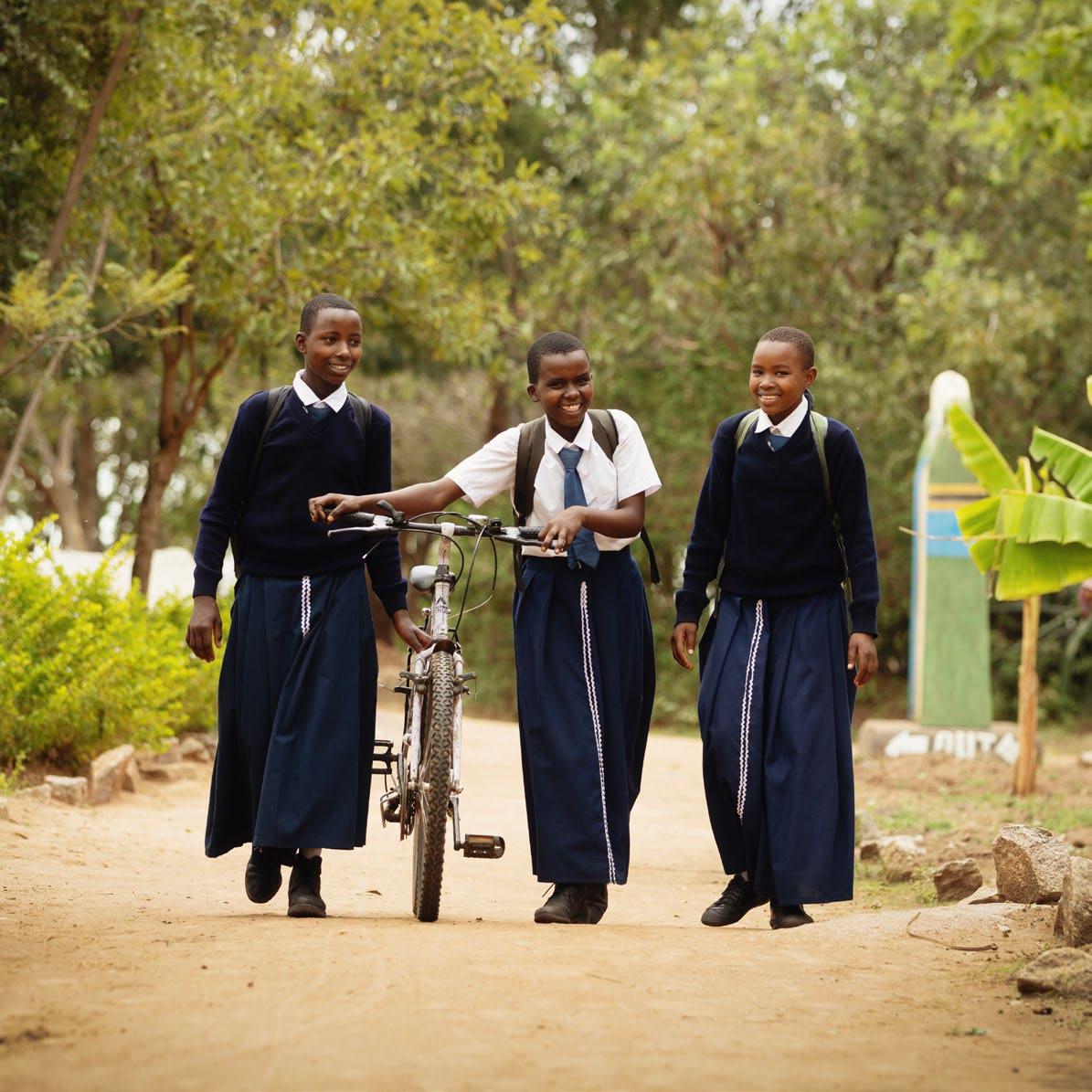
MAY 2024 - APRIL 2025
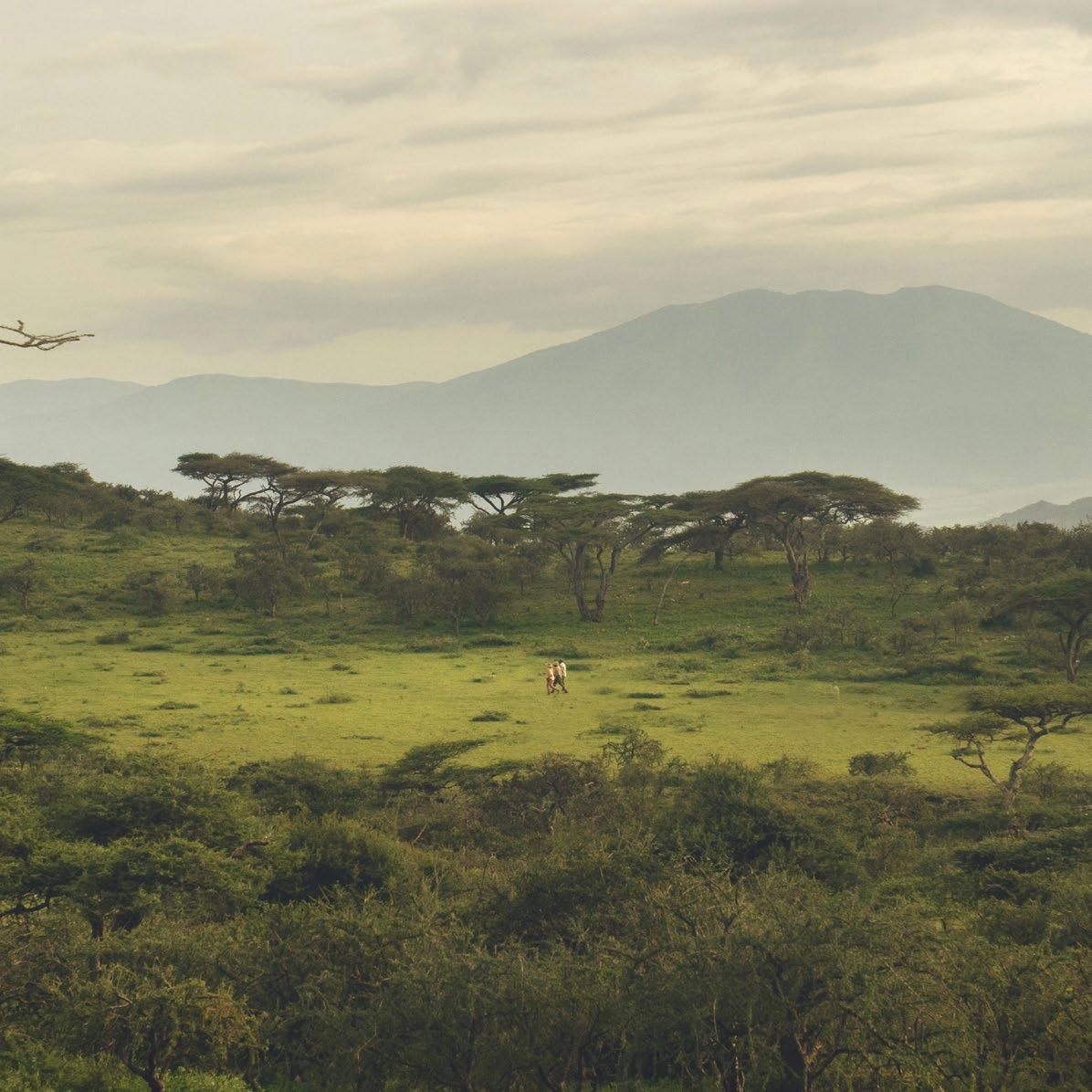


MAY 2024 - APRIL 2025

Our logo represents Nomad’s virtuous circle and shows how we use the business to create life-enhancing opportunities wherever possible. Each element is critical to the others, in life and within the logo. Our logo is to remind us of our purpose.
Creating opportunities allows us to attract the best people and have an impact in the areas we operate
Happy clients are the basis of a successful business
A successful business allows us to invest in people and support our projects
From the beginning, Nomad has always been about its people. Whether guiding guests in remote areas, working behind the scenes in camps, managing logistics, or supporting community projects, it’s their deep knowledge, care, and spirit that bring our safaris to life. It’s heartening to see so many of our team stepping into new opportunities, sharing their knowledge, and growing alongside our guests and communities.
The communities near our camps play an essential role in shaping who we are. Their connection to the land, resilience, humour, and generosity continually guide our work. They help us understand what meaningful support looks like and remind us that real impact starts with listening.
This year, that understanding has driven important strides in health outreach, especially for children. We’re reaching more villages, helping with complex medical needs, and supporting families facing challenges like cancer, disability, and malnutrition. These are tough realities, but we remain committed, working alongside medical experts to offer care where it’s needed most.
In education, we’ve been inspired by the drive and ambition of the students we support. Their leadership, achievements, and determination reaffirm our belief in the power of nurturing potential through education.
Our conservation work continues to grow through strong ties with communities living alongside wildlife. From game scouts and early-warning systems to beehive fences and elephant lookout towers, local people are becoming skilled protectors of their own land.
By booking a Nomad safari, you’ve joined a genuine force for good. Your impact on Tanzania, its people, and wildlife is real. Thank you for any donation you choose to make – it’s deeply appreciated, never expected.
Mark Houldsworth Nomad Co-Founder
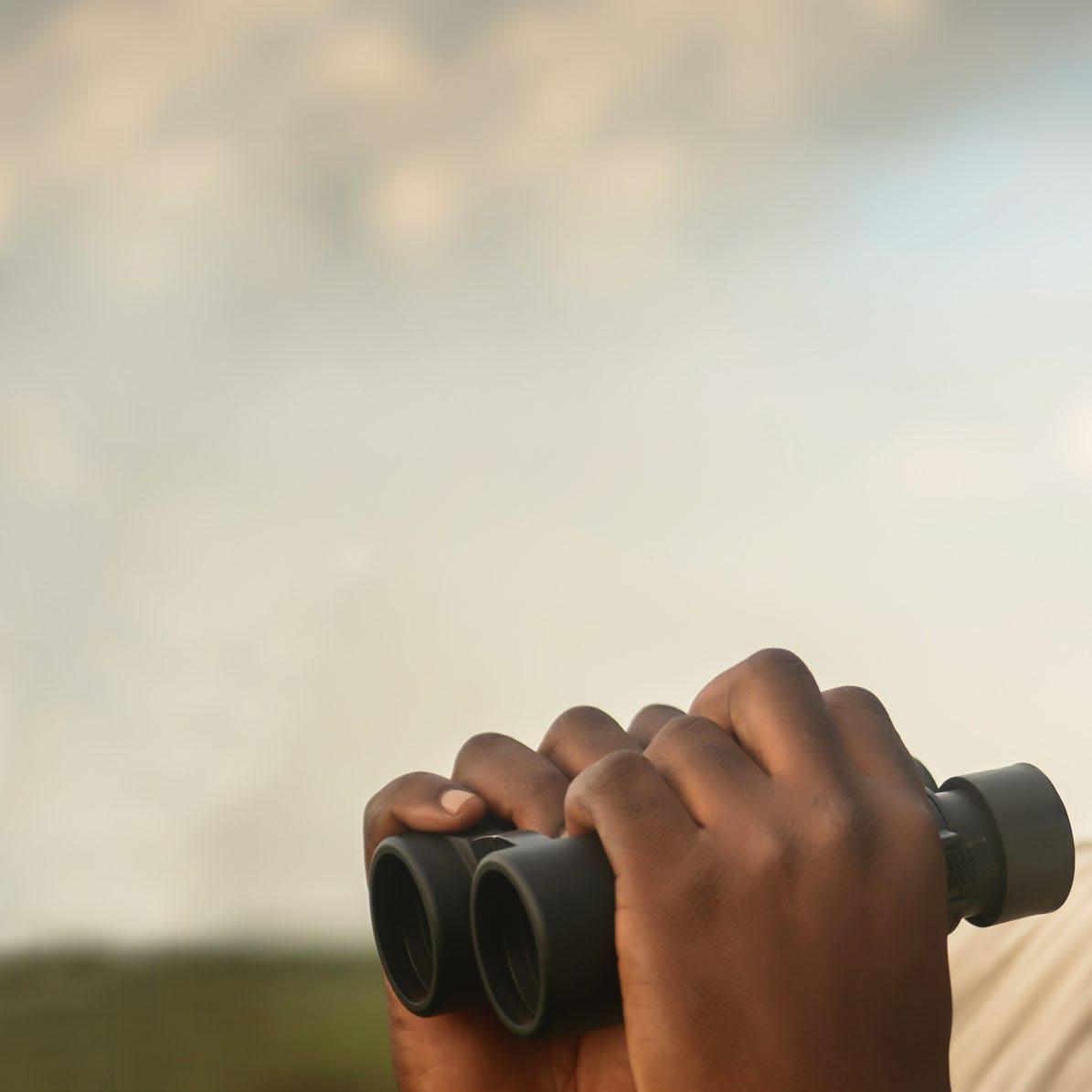
SO
To harness the power of our award-winning safaris to create life-enhancing opportunities wherever possible. For our clients, this is the promise of a safari with Nomad. That promise extends to our people and the communities in the remote places we operate, where talent is everywhere, but opportunity is thin on the ground.
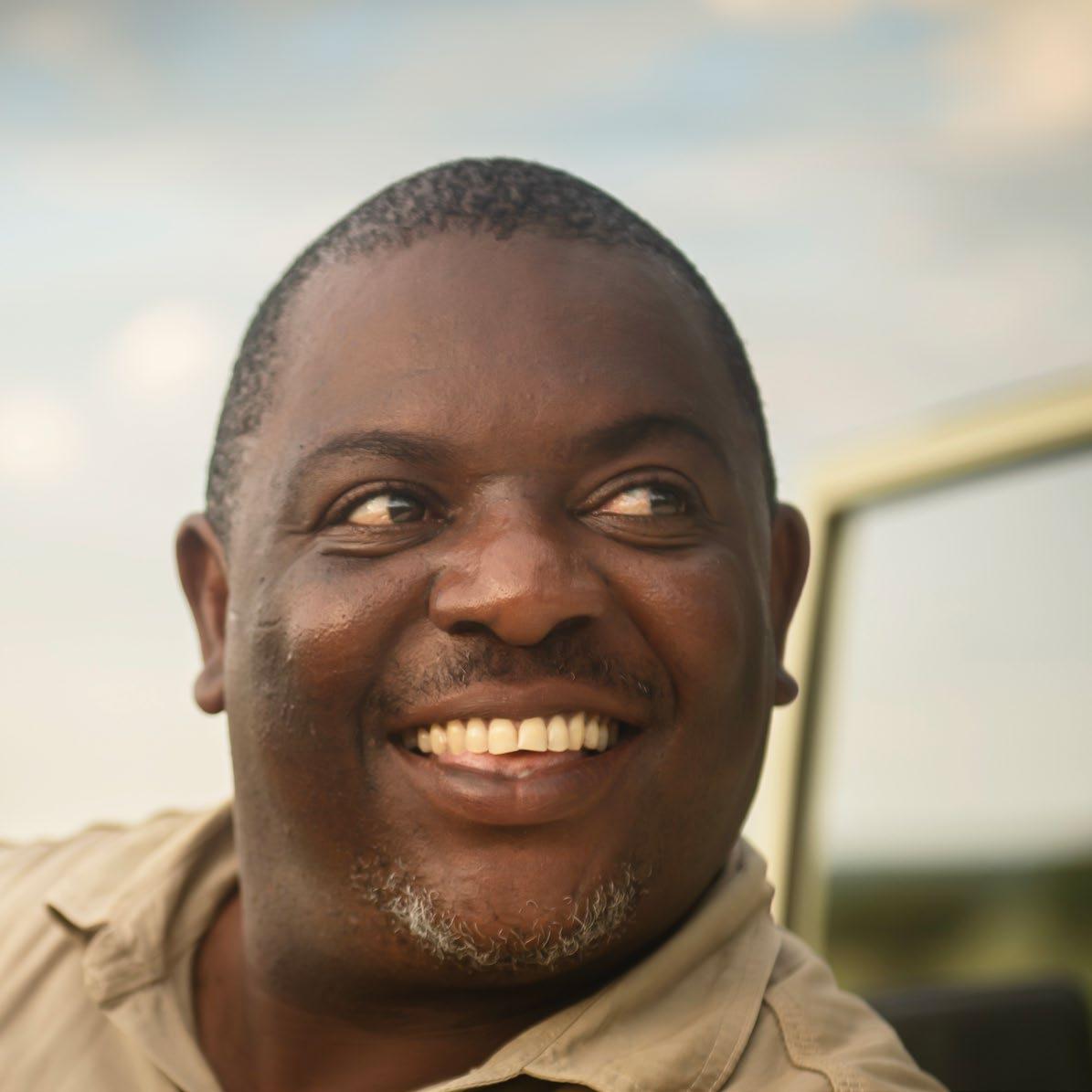
Mussa Charles – one of our most experienced guides, Mussa has spent a decade sharing his deep knowledge of the bush. It’s the little things that bring him the most joy, especially the incredible birdlife.
Whether inspiring dynamic careers or supporting local suppliers, using our camps for medical outreach or funding free school meals, we know our business has the power to improve lives. And it’s this that drives everything we do at Nomad.
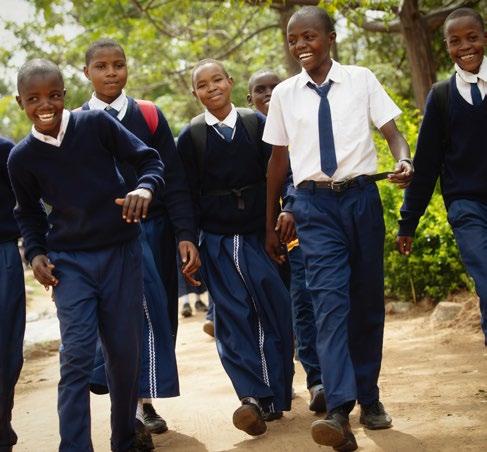
Investing in education
Education is the foundation, the key to unlocking potential and the gateway to opportunity.
Help us do more
If this impact report has inspired you, please scan the QR code to donate. Every penny raised helps us to supercharge these projects across Tanzania.
Creating career paths
Use our business to forge new opportunities for people to grow and develop skills.
Supporting entrepreneurship
Investing in local people with our innovative approach to provide funding, training and business support.
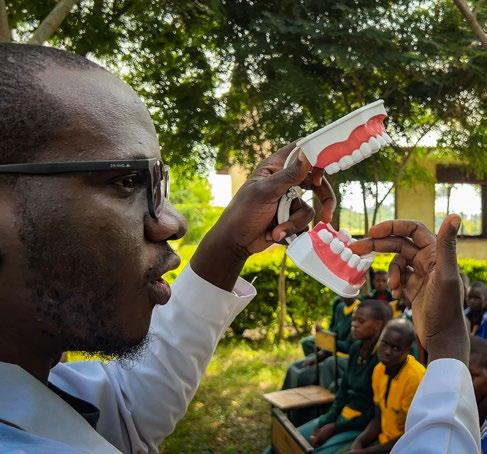
Beds for Meds
Allow doctors, dentists and other health professionals to use our camps, cars and planes to treat communities in the remote areas we work.
Making Nomad the ultimate workplace
Going the extra mile to support the Nomad team in every area; from medical insurance to working conditions.
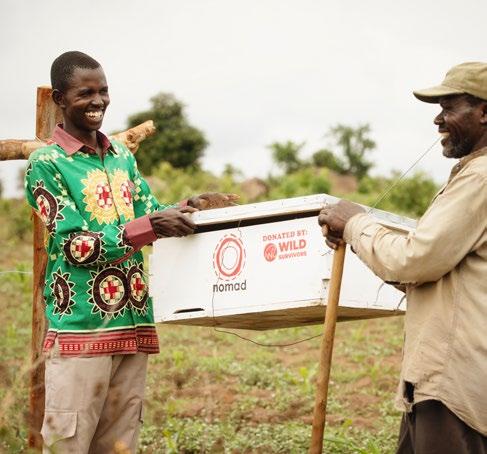
Lightening our footprint
Looking after the environment one step at a time from camp design to cutting food miles.
Supporting conservation partners
Lending camps, people, cars and planes, wherever we can be helpful to support conservation in the field.
Sharing our love of the natural world
Doing anything we can to inspire the next generation to realise the importance of conservation.
Conservation driven by tourism
Using tourism as a powerful tool for direct protection of habitats and wildlife.
Reporting period: May 2024 - April 2025.
Education is the foundation, the key to unlocking potential and the gateway to opportunity.
5
students provided boarding support.
bicycles donated to students living far from school.
12
31 youths sponsored in secondary and tertiary level education.
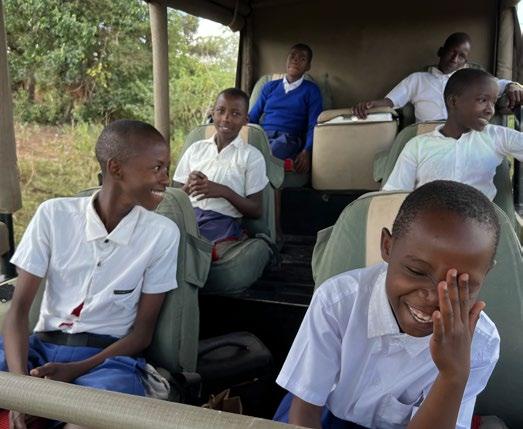
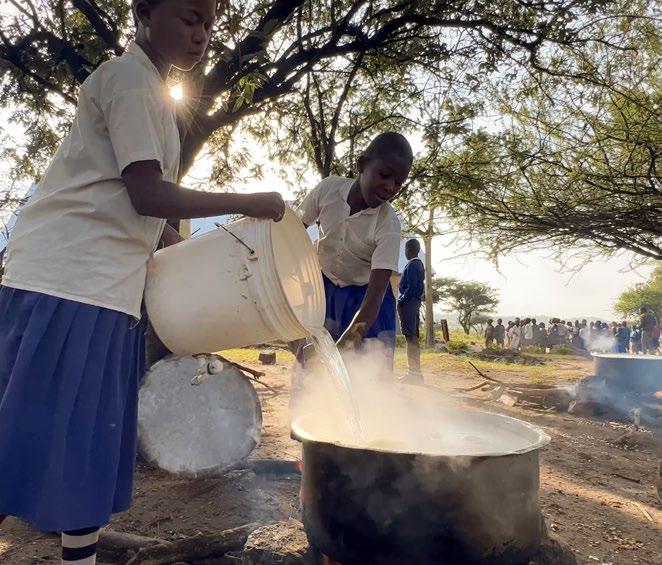
222,946
1,069
school children receiving one meal during their school day (average monthly number).
meals provided throughout the last year.
12
schools across Tanzania are part of our meal-a-day programme.
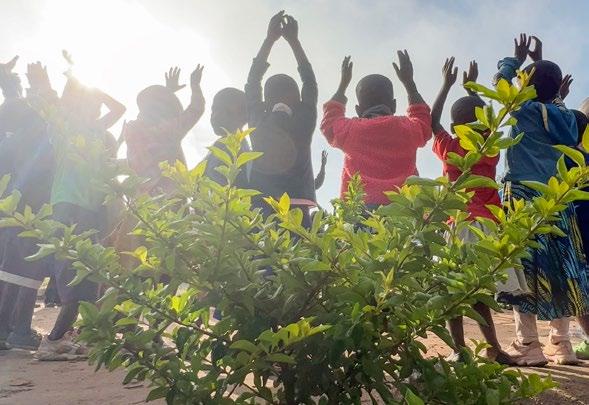
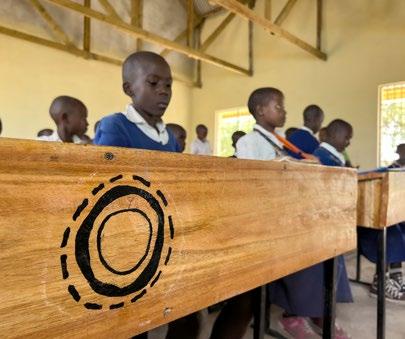
692
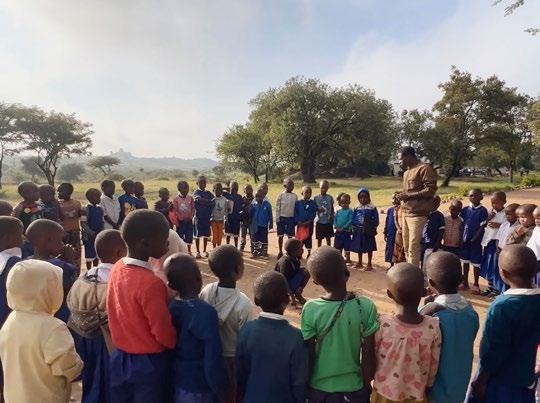
desks provided to schools in Nyerere, Ruaha, Mahale and Katavi.
3
students graduated from MWEKA.
2,090
students benefiting from school renovations.

42
storage trunks donated to primary and secondary school students.
755
girls taking part in female empowerment and hygiene workshops in Serengeti, Ruaha and Mahale.
Jackline Menauru Kokani (Jacky) comes from Kisaki, a village on the edge of Nyerere National Park in Morogoro.
Growing up in a Maasai pastoralist community, she witnessed firsthand the challenges of human-wildlife conflict, with crops being destroyed by elephants, livestock lost, and even human lives threatened. These experiences inspired her to seek solutions that would protect both her community and the wildlife they live alongside.
Driven by a passion for change, Jacky pursued opportunities in conservation and was introduced to us, Nomad Tanzania. We provide education opportunities to individuals from human wildlife conflict areas near our camps, who show an aptitude and interest in areas of environmental studies, tourism and skill based roles. She shared her vision of helping the community she grew up in coexist with wildlife, and we spotted a hunger to learn and supported her through a series of training programmes. This foundation enabled her to enroll at the College of African Wildlife
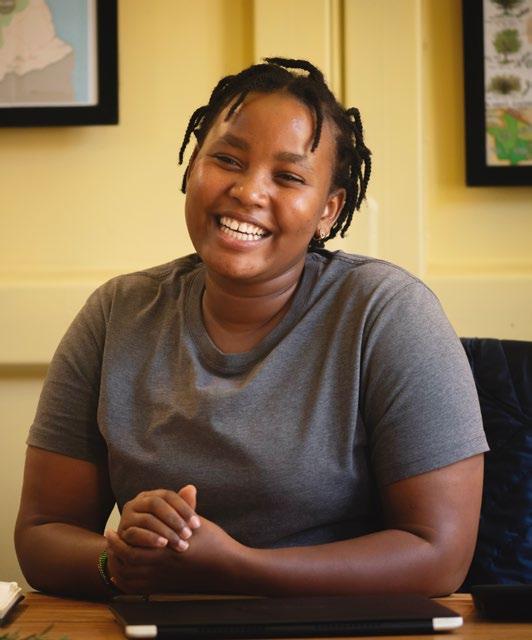
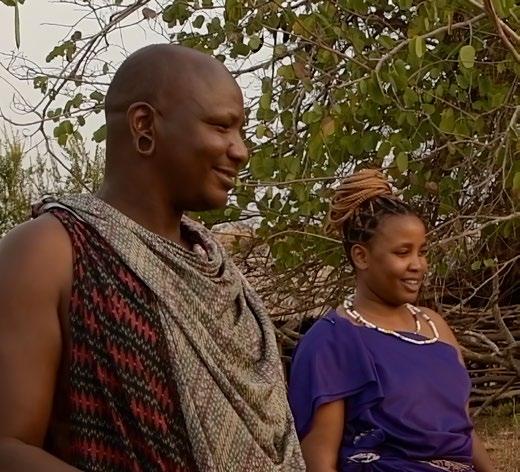
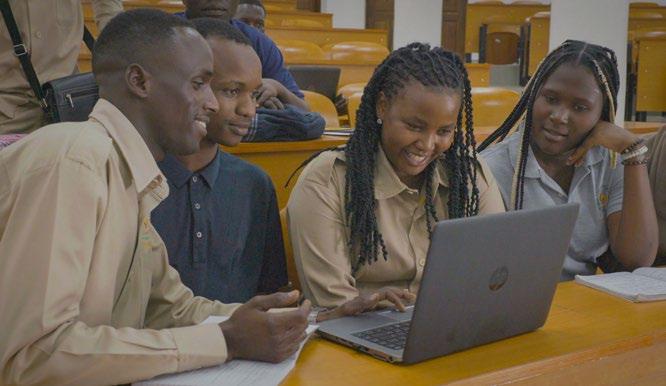
Find out more
Scan the QR code to watch Jacky’s journey.
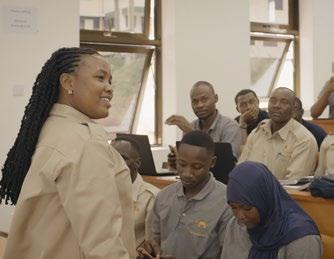
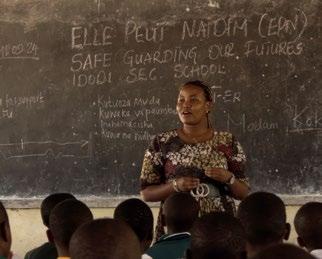
Management, Mweka, where she began her formal education in wildlife management during the 2023–2024 academic year.
At Mweka, Jacky embraced her studies with determination, overcoming the challenge of learning in English and excelling in both academic and practical subjects. She gained in-depth knowledge of conservation strategies, human-wildlife conflict, and wildlife behaviour, along with valuable digital and physical skills.
In July 2024, Jacky joined our community department, where she continues to grow as a conservationist. With the guidance of her team, she has learned how to engage effectively with communities, build trust, and support
education initiatives bringing her enthusiasm and zest for life everywhere she goes.
Now, Jacky is committed to becoming a mentor and advocate, especially for young girls in rural areas. Her goal is to inspire others to pursue their dreams and champion a future where people and wildlife thrive together.
Help us do more $2,500 could support a student, like Jacky, through college and onto a bright future.
Our meal-a-day programme has grown again this year as it moves into new areas and schools. The programme provides one square meal every day to 1,069 students across twelve schools nationwide.
Many students walk up to 8km to school on an empty stomach and concentrating is difficult. By providing a cup of porridge, it allows these kids to get the most from their school day.
Sometimes it’s no more complicated than filling an empty stomach. Once that’s done, the kids will take care of the rest.
Find out more
Scan the QR code to watch our meal-a-day programme video.

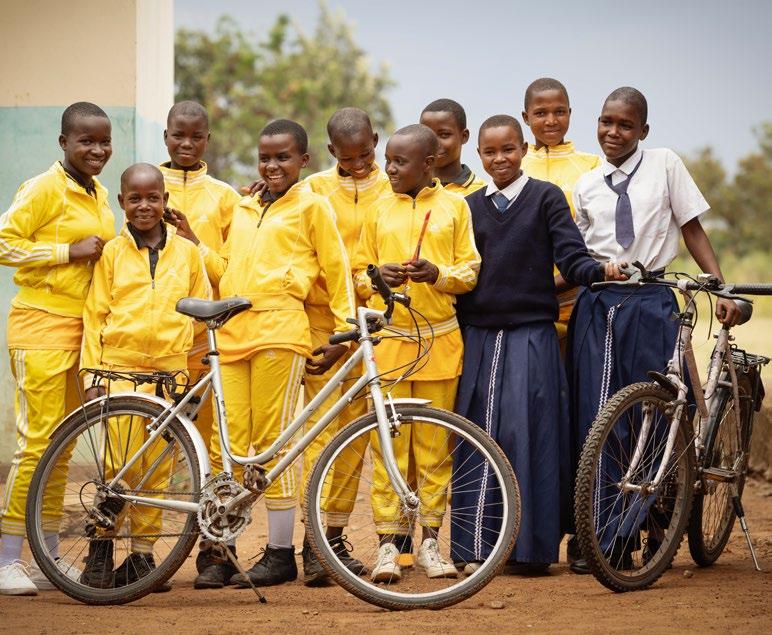
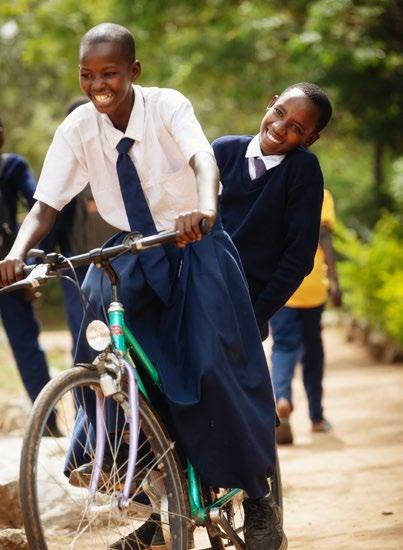
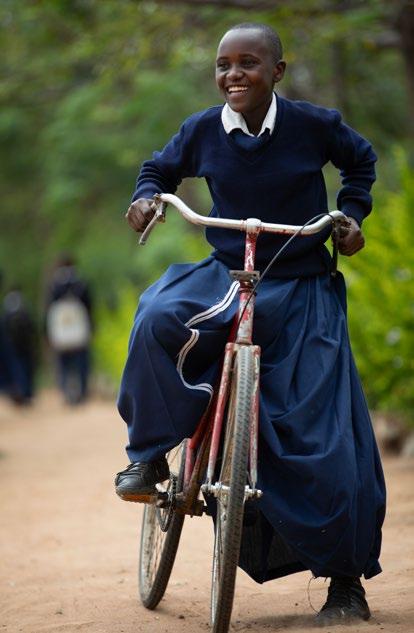
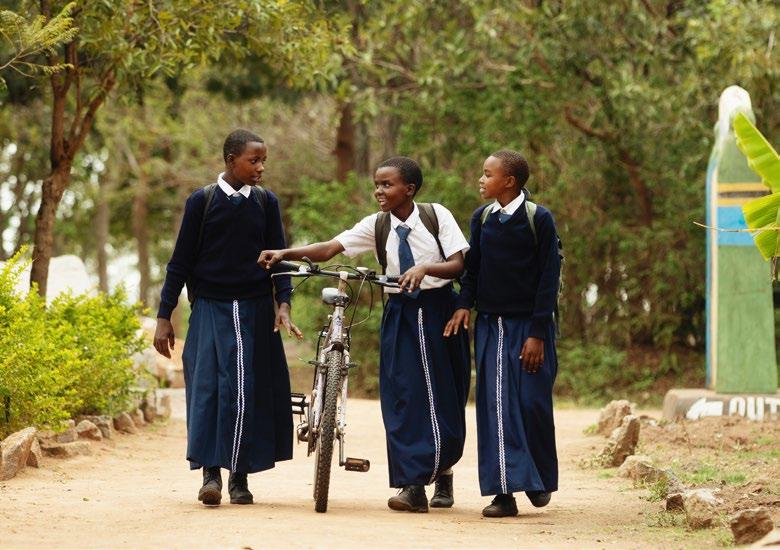
In three villages across Northern, Southern, and Western Tanzania, we gifted 31 bicycles to secondary school students.
For many of these students, the journey to school stretches up to 12 kilometres each way, often beginning before dawn and ending after sunset. The long walk is not only physically exhausting but opens them up to real dangers including encounters with wildlife from nearby protected areas, and for girls in particular, the increased risk of walking alone in remote areas at unsafe hours.
The result? Fatigue that affects focus in the classroom, reduced academic performance, and a higher likelihood of students, especially girls, dropping out of school altogether.
But a simple swap to a bicycle can make all the difference. Since providing the bicycles,
schools have noticed a reduction in absenteeism, improving concentration, and perhaps opportunities that were maybe not available previously.
Small changes can make a world of difference, whether it is for one life or many.
Help us do more $1,000 could buy 10 bicycles for students in remote communities.
Reporting period: May 2024 - April 2025. of locally recruited employees were promoted during the year.
Use our business to forge new opportunities for people to grow dynamic careers and develop skills.
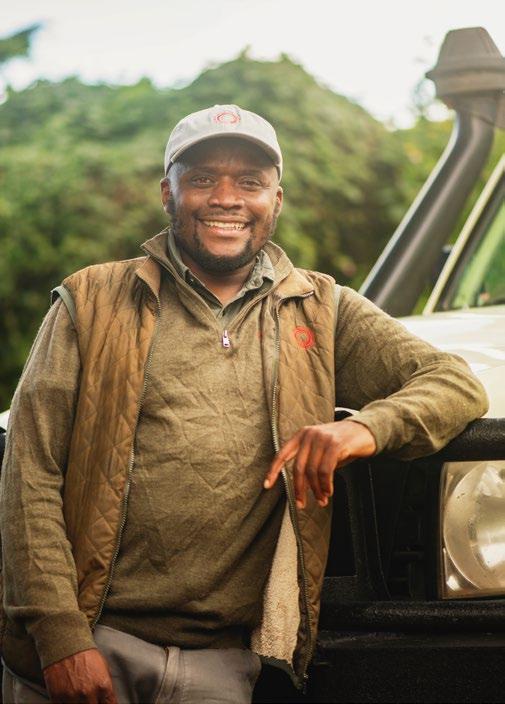
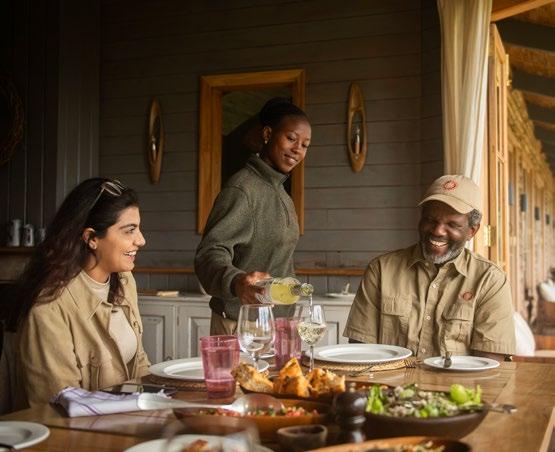
98
124 days of chef training for camp chefs and improving knowledge of specialist diets.
59%
interns from local areas were given placements at Nomad camps as part of their internship.

181
training days for Nomad Junior guides including shadowing of senior Northern Guides as part of our guide rookie programme.
28
40 guides and camp managers attended a two-day TATO (Tanzania Association of Tour Operators) training event on responsible tourism, the environment and guest safety.
employees attended a 30-day English Language course across five levels of qualification.
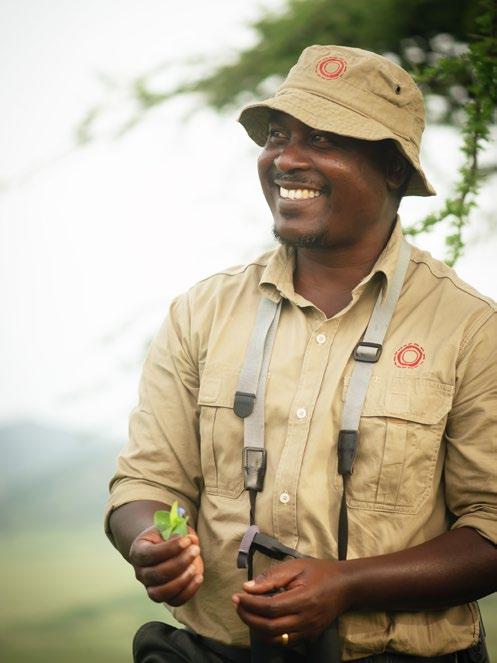
140
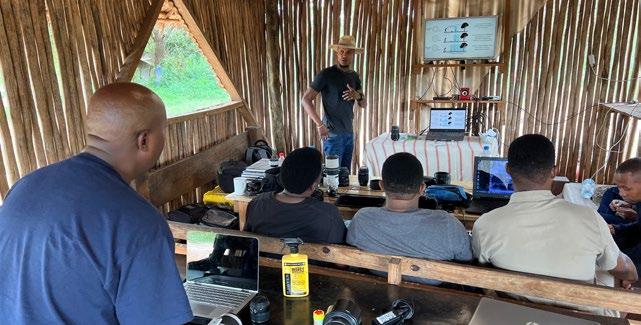
7 hours spent on a photographic and videography course by 12 Nomad Guides.
4 days of rifle training in Ruaha for aspiring junior scouts.
days bird training with all junior guides conducted by Gabriel Mushi and a Nomad senior guide.
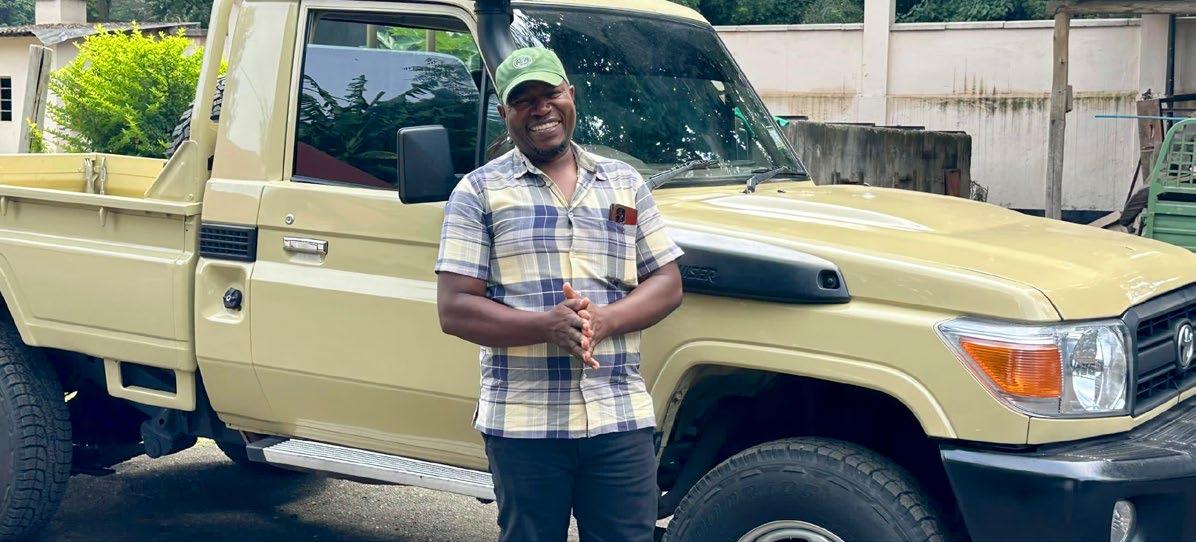

Extending ownership beyond the guide seat and creating pathways to independence for every member of the Nomad family.
What began with safari guides owning their own vehicles has evolved into something broader. For years, our microfinance programme allowed northern guides to purchase Land Cruisers, hiring them back to Nomad until full ownership transferred – a scheme creating genuine assets while deepening professional investment.
Now we’re extending this opportunity to the people who keep camps running: mechanics, chefs, builders, trackers. They’re the backbone of operations, less visible than guides but equally vital. For many, vehicle ownership seemed permanently out of reach. At Lamai, Paulo Kibuyu and Kenny Mbao share a pickup that supplies fresh vegetables and building materials. Babu Francis does the same at Sand Rivers. Mzee Jacob’s tractor loan proved transformative – essential for construction work and rescuing vehicles from seasonal mud.
In Mahale, two longtime trackers are purchasing a car for resupplying from Kigoma and supporting lakeshore outreach programmes where transport remains scarce.
Each loan represents more than financial assistance, it’s recognition that true sustainability comes from empowering the entire workforce. The mechanic who maintains our generators deserves the same pathway to ownership as the guide who spots leopards.
At Nomad, investment in people extends far beyond pay checks to lasting opportunity.
Every year, our brilliant Nomad staff commit themselves not just to delivering unforgettable, award-winning safaris—but to growing as individuals and professionals. Behind every beautifully set table in the bush, every expertly tracked lion, and every warm welcome at camp, is someone who has chosen to learn, improve, and strive for excellence.
Over the past year, our teams have taken part in a wide range of training programmes. These include in-depth chef development, hospitality training for housekeepers and waiters, and highly specialized guiding instruction – from bird identification and reptile awareness to rifle training and leadership development. Our junior guides have spent days in the field learning from conservation experts and seasoned Nomad veterans.
Housekeepers and camp managers have gathered to sharpen their skills and share best practices. Chefs have cooked side by side, learning from the very talented Holly Voorspuy, building skills that not only enhance our guest experience but bring pride to their craft.
This investment in people lies at the heart of what we do. When we pour into our teams, we see the impact ripple outward – into families, communities, and the wild places we are privileged to call home.
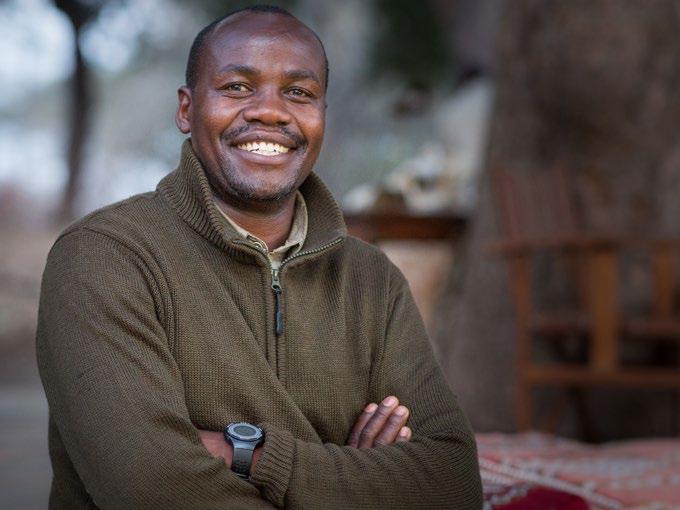
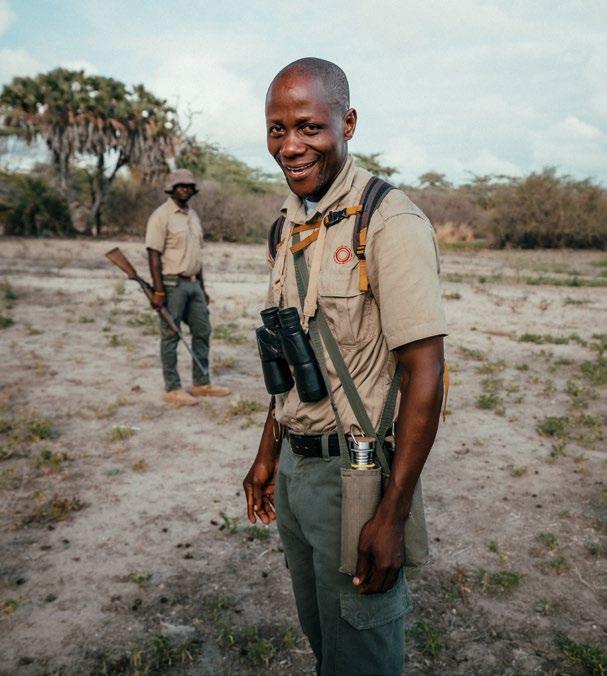
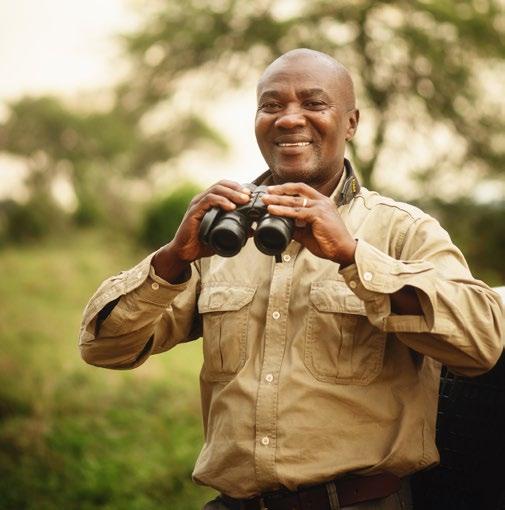

Reporting period: May 2024 - April 2025. participants in youth empowerment and conservation themed workshops.
Investing in local people with our innovative approach to provide funding, training and business support.
10
144
farmers engaged in dialogue and farming technique talks.
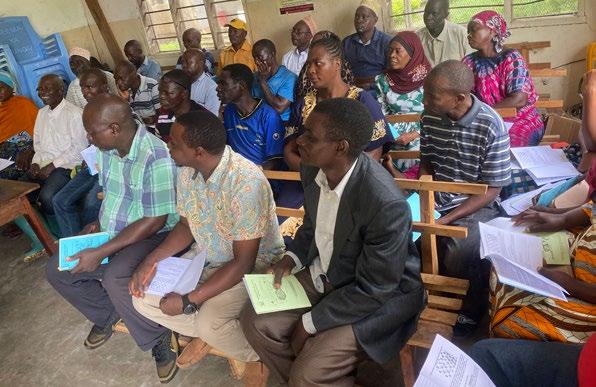
$596,310 spent with local suppliers and artisans for camp items.
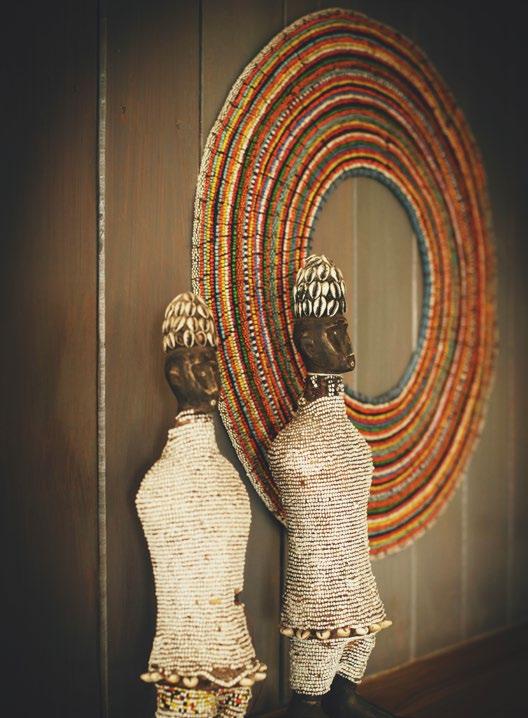
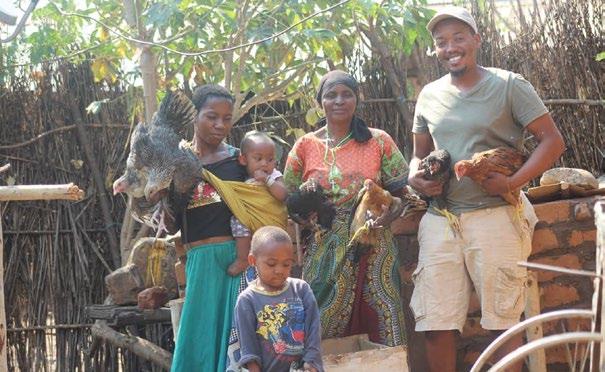
2
young women supported with skill-based apprenticeships and start up kits. One tailoring and making uniforms for students in her village, another making breakfast packs for our western schedule flight passengers.
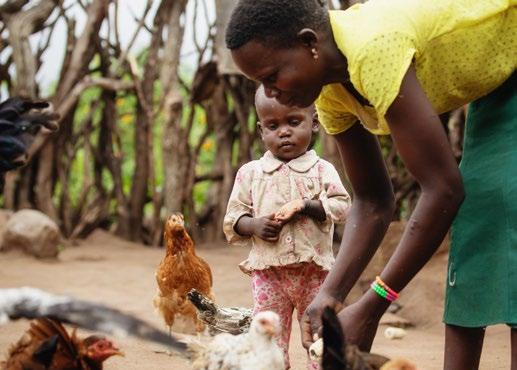
50
chickens delivered to families in the Serengeti as part of our business support programme.

604
chickens are now being raised by 30 women involved in Nomad’s chicken project.
$763
funding for our chicken business start up programme.
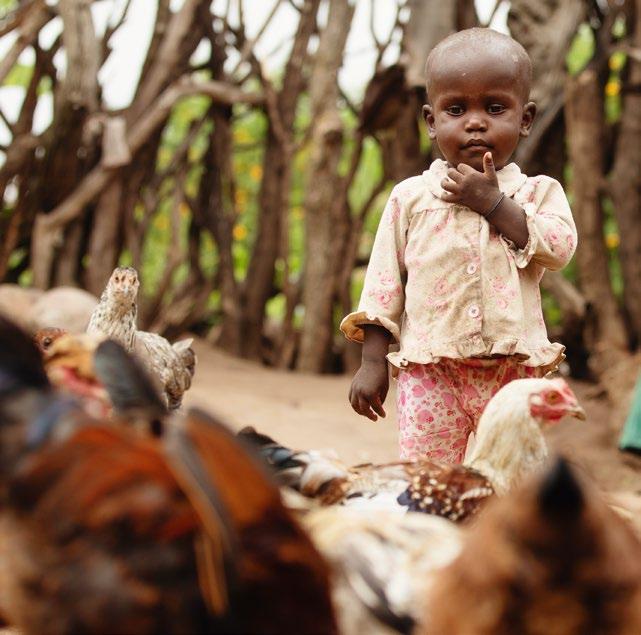


We believe business can empower individuals to gain control over their livelihoods. Through our business support scheme, we invest in local people, helping them establish their own ventures and take charge of their daily lives.
In 2022, Sophia, a widowed mother from a small village in the Serengeti, joined our Women’s Chicken Group Programme. With support from the programme, she received 10 chickens, hands-on poultry training, and a contribution to help build a chicken coop at her home.
Since joining the programme, she has grown her flock from 10 to over 50 chickens, transforming a small opportunity into a thriving source of livelihood creating a source of stability and independence which she didn’t have before. The chickens have helped her provide daily meals, cover school fees for her children, and pay for medicine when they fall sick. She no longer relies on irregular support or loans, she now stands proudly on her own feet, able to care for her family and plan for the future.
In many rural communities like Sophia’s, the humble chicken requires minimal investment and space and is a sustainable way for women to earn a steady income from their own homes.
Sophia’s story is a little reminder that small, thoughtful interventions create lasting change in the lives of women and their communities.
Help us do more $1,250 could give ten women the opportunity to build their own chicken business.
Reporting period: May 2024 - April 2025.
Allow doctors, dentists and other health professionals to use our camps, cars and planes to treat communities in the remote areas we work.
1% total spent.
13% dentist outreach. 9% fistula programmes.
$55,381 invested in eye specialist programmes. 40% general health programmes. 37% in partnership with Kafika House and child disabilities.
10,000
people, including children, have attended our health education talks across the country.

Number of individuals seen across our medical specialisms.
217 seen by ear, nose and throat specialists.
280 seen by nutritionists.
455 seen by specialist dentists.
931 screened for child disabilities.
2,435 for women’s health checks.
192 seen by eye doctors.
7,513 seen by general practitioners.
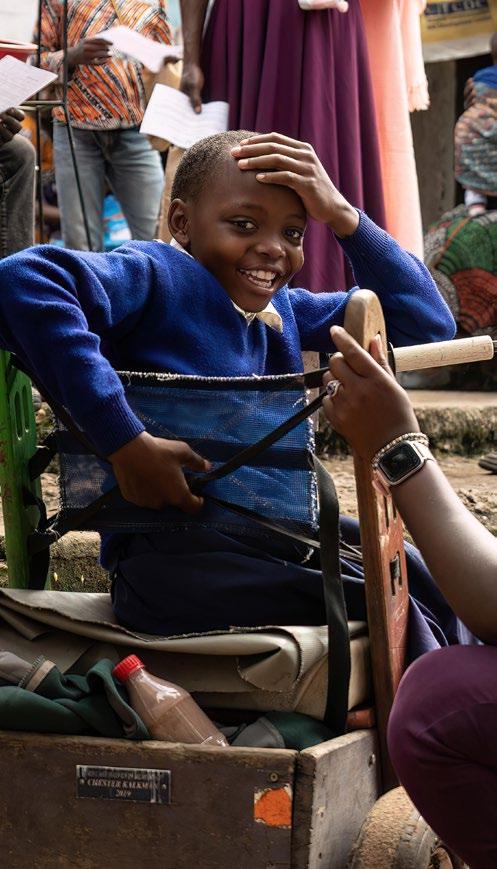
BREAKDOWN BY REGION individuals.
2,522 people in Western Tanzania.
3,003 people in Southern Tanzania.
3,665 people in Northern Tanzania. 1,326
Where safari logistics brings vital medical care to Tanzania’s most remote children – think of it as the ultimate house call.
What began with guides noticing treatable conditions in village children has evolved into systematic change. Club feet that could be corrected, deformities that need not define a life - distance and cost created barriers until we realized our greatest asset wasn’t wilderness access, but logistical reach.
Five years ago, we partnered with Kafika House in Arusha, using our transport networks to connect children with specialised care. Success stories multiplied: corrected club feet allowing children to run, cleft palate surgeries restoring confidence. Each transformation revealed broader need.
This year, our scope expanded beyond physical disabilities. Working with medical specialists, we now address malnutrition, screen for childhood cancer, and provide physiotherapy for children with cerebral palsy and autism. Annual health outreach camps transform village clearings into temporary clinics where local doctors work alongside visiting specialists.
The numbers matter with 3,280 children reached in 2024. But individual moments define impact: mothers learning nutrition techniques, families discovering their autistic child’s potential, early cancer detection that changes everything.
Bush airstrips that ferry safari passengers now land medical teams. Kitchen staff who cook for camp guests prepare meals for clinic families. The same logistical precision creating seamless safaris ensures no child is turned away.
In remote Tanzania, where untreated conditions can mean lifelong disability, we’ve learned that true luxury lies in the simple ability to help.
Find out more
Scan the QR code to follow our recent Beds for Meds clinic.
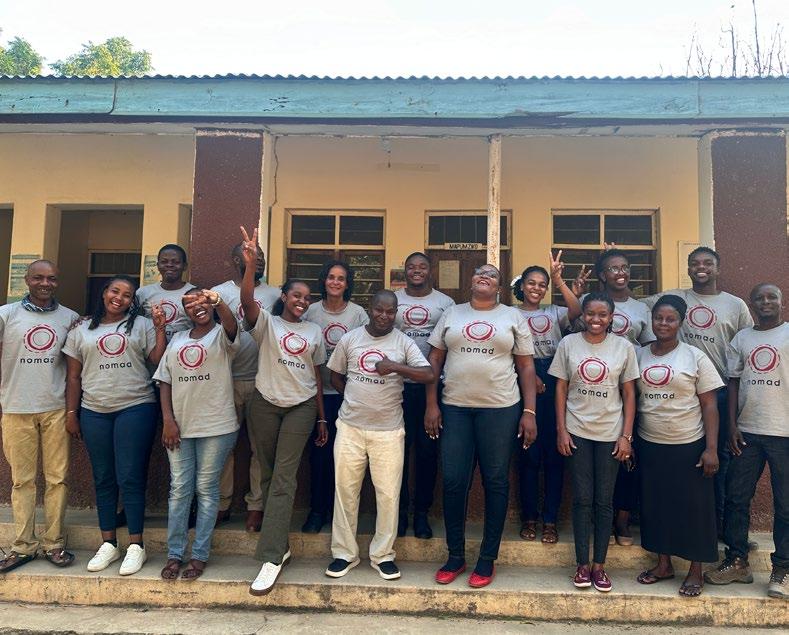
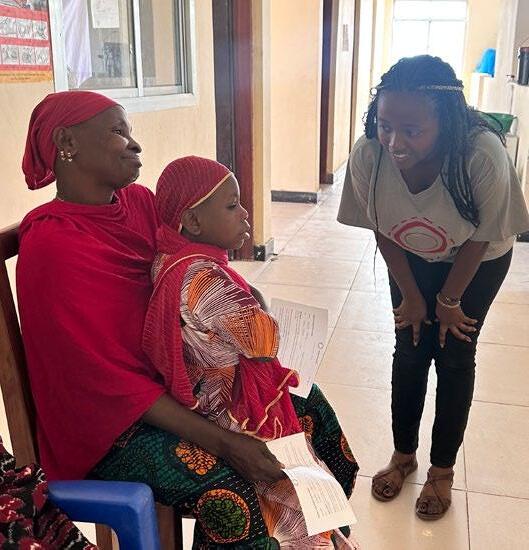
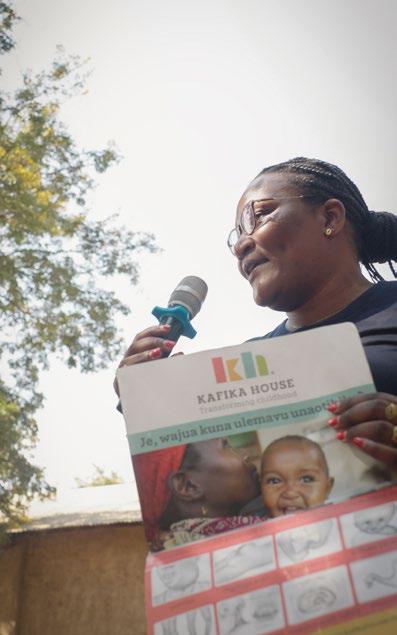
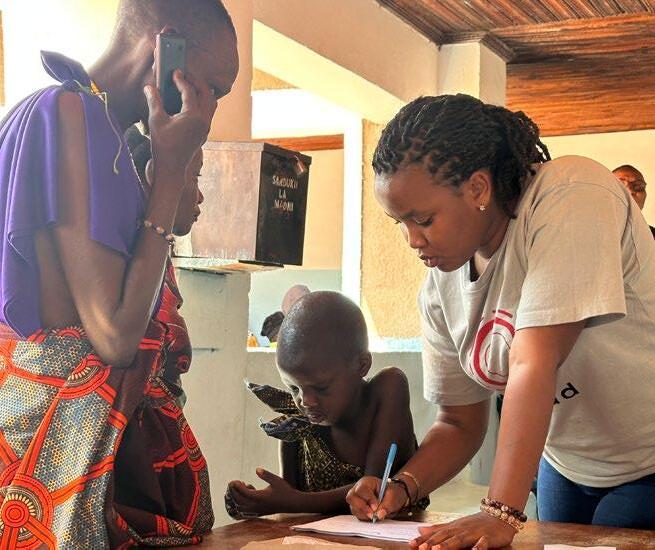
Reporting period: May 2024 - April 2025.
MAKING NOMAD THE ULTIMATE WORKPLACE
Going the extra mile to support the Nomad team in every area; from employment and working conditions to medical insurance and remuneration.
27
women at Nomad Arusha office celebrated International Women’s Day with a day full of talks on womens health.
$62,500
medical insurance cost for each member of camp and operational crew to cover themselves and five members of their family.
319 1,595
Nomad staff covered by health insurance policy covering pre-existing health conditions and up to five members of their family.
family members covered from the Nomad employee health insurance.
800km
covered by Nomad runners in six fundraising marathons and running events.
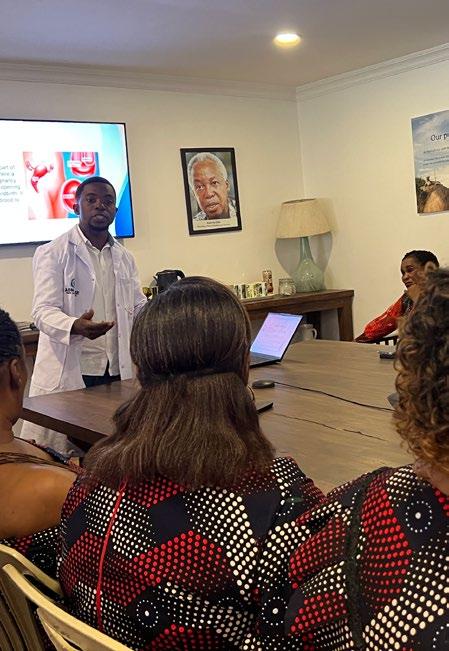

70% 25%
of Nomad camp teams recruited from local communities surrounding our camps. of camp and operational roles filled by female employees.
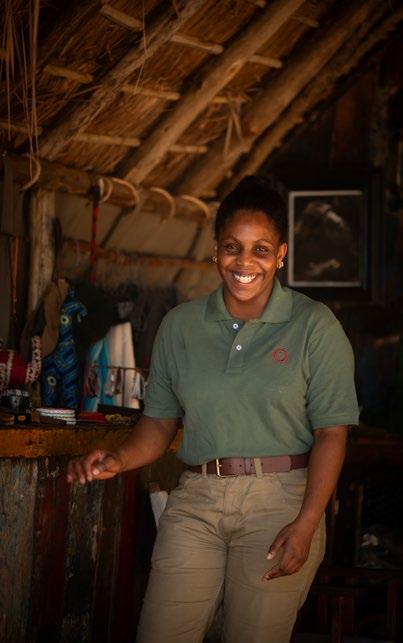
At Nomad, we are incredibly proud of the women who power our camps and shape the heart of the guest experience. Women make up a significant and growing proportion of our camp and operational teams, with representation reaching around 25% in many areas – an achievement we’re proud of in a field where gender equality is still a work in progress.
Across our camps, women bring energy, skill, and determination. From guiding and cooking to managing logistics and guest care, they play vital roles every single day. Their presence lifts standards, sets examples, and builds a stronger, more inclusive Nomad.
We’ve invested in training and leadership development specifically for our female staff, ensuring they have the tools and confidence to thrive. Alongside this, our work in local communities continues to support girls’ education and women’s health, with targeted programmes that create real, lasting change.
We’ve seen remarkable stories unfold – young women stepping into leadership, mastering their trades, and becoming respected voices in their teams. Their drive and spirit are what push us forward.
At every level, our female staff remind us what’s possible when opportunity meets courage. They bring warmth and strength to our camps, and we are deeply proud to work beside them. Their impact is felt not only in the work they do, but in the inspiration they offer to others following in their footsteps.
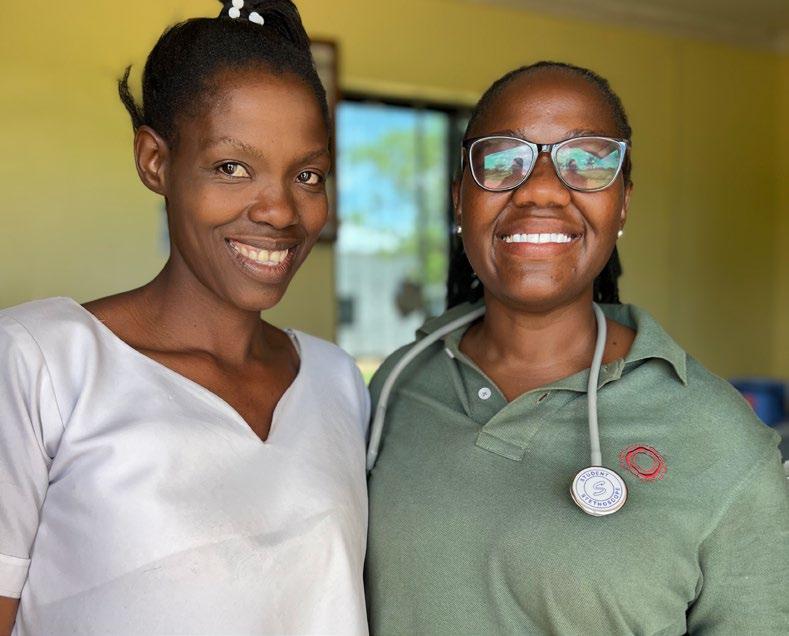
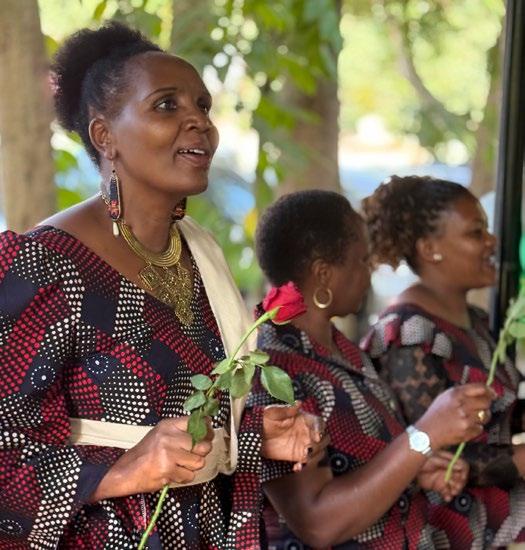
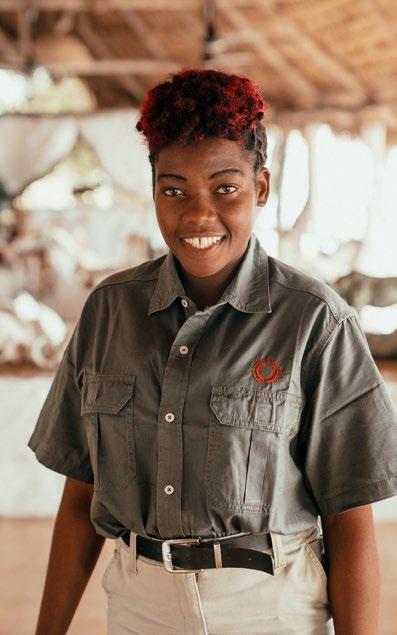
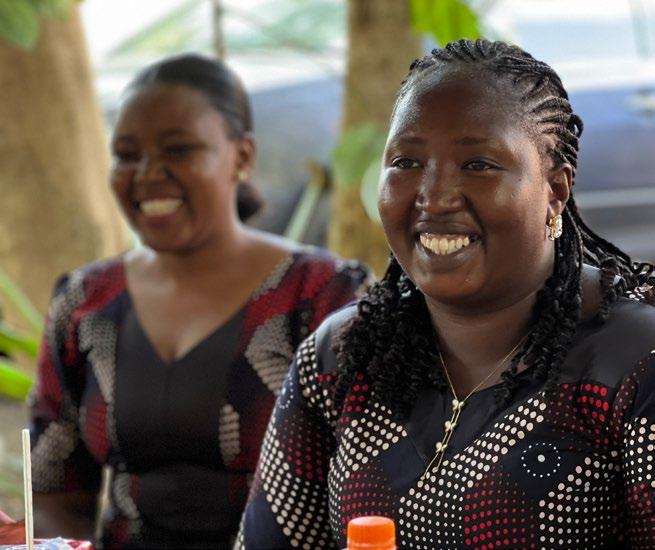
Reporting period: May 2024 - April 2025.
LIGHTENING OUR FOOTPRINT
Looking after the environment one step at a time from camp design to cutting food miles.
9,206
kilometres saved by using local vegetable and food suppliers from villages on the park boundary to supply the camps.
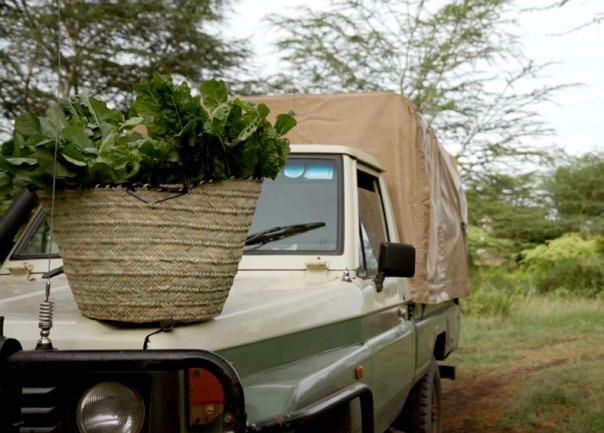
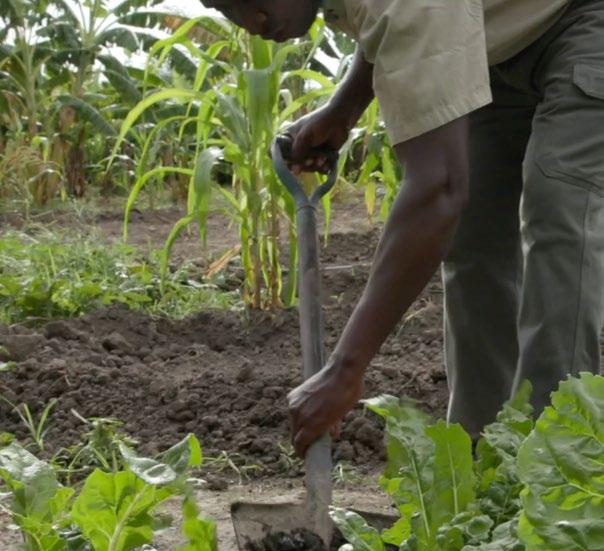
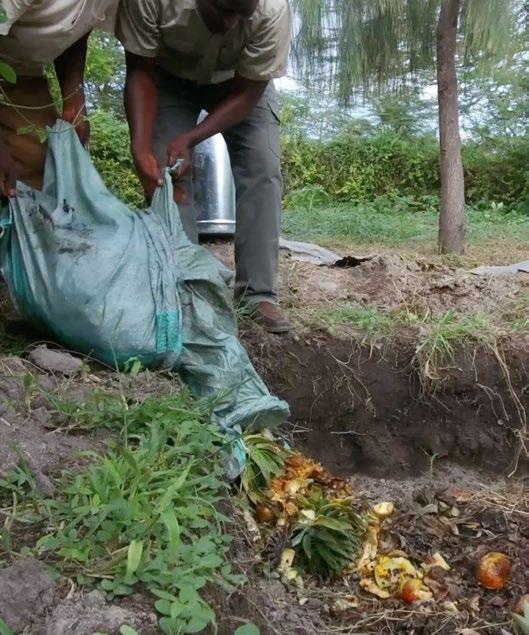
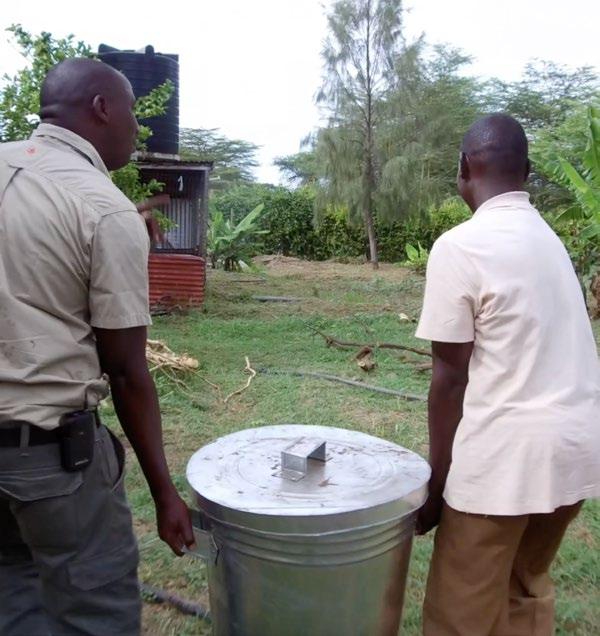
390kg
of waste recycled. Recycling switched to a locally based operation. All northern camps now recycle locally in Arusha, turning food waste into lavi for chicken feed and low-methane compost.
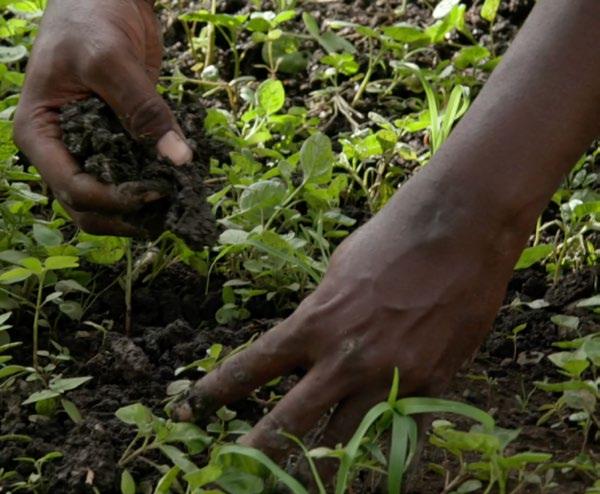
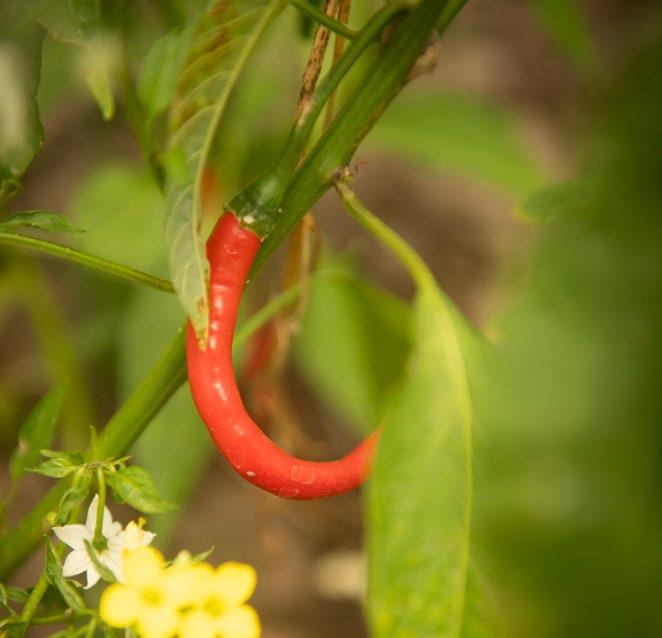

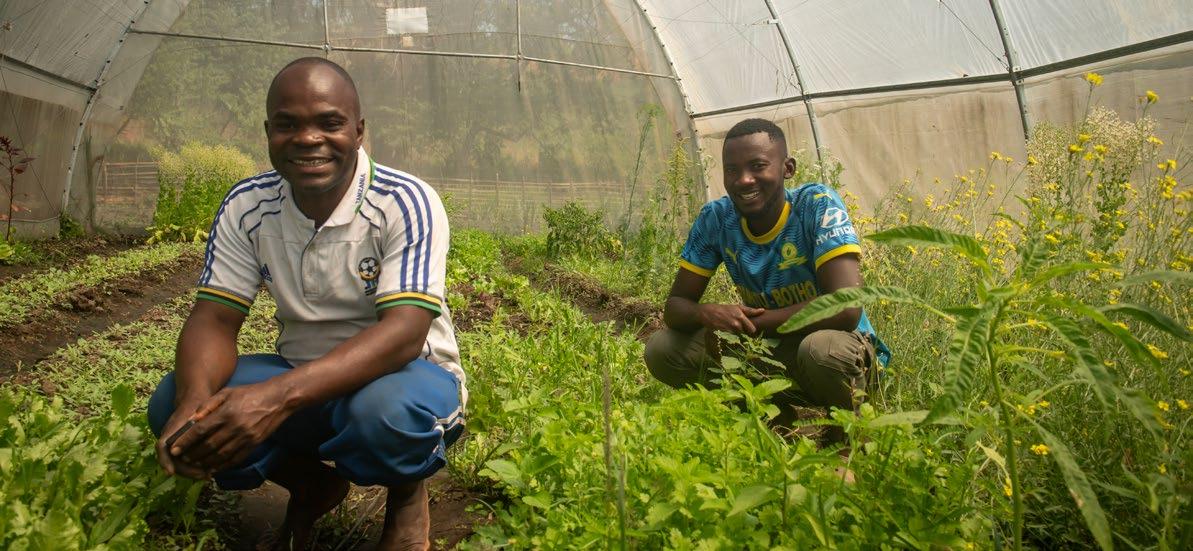
LIGHTENING OUR FOOTPRINT
Greystoke is as remote as you can get. No roads in and the boat from the nearest town takes the best part of a day and so it is important to us that we take a considered approach to lightening our footprint when it comes to supplying our camp with the produce it requires.
Saidi and Salim’s garden is a good example; they grow vegetables for Greystoke at a farm just along the lakeshore. We love their local produce and we love to back local suppliers, whenever we can. It’s just a short journey from the fields to our kitchen, and helps to shrink our carbon footprint to the lightest tread.
The union between Nomad and their garden lends a platform for further agricultural learning: how to grow organically, how to conserve water, how to manage pest infestation safely; what works, what doesn’t.
This partnership and many others, helps to build local business and create opportunity in surrounding areas to our safari camps.
“I’m living the dream my parents helped me begin”
Greystoke, Mahale is one of those rare places where nature speaks with clarity, and if you listen closely, it can move you.
On the shores of Lake Tanganyika – Earth’s second-oldest, seconddeepest, and one of its purest lakes –life thrives in ways found nowhere else. This shimmering body of water holds 17% of the world’s fresh water and shelters over 400 species of fish, with an astonishing 98% of them found only here. But the lake is just the beginning of Mahale’s magic.
Tucked in the Mahale Mountains is one of the last wild sanctuaries for the Eastern Chimpanzee. These intelligent, curious beings mirror us in the most startling ways – forming alliances, caring for their young, even playing political games not unlike our own. They are guardians of the forest too, spreading seeds and maintaining the health of the ecosystem.
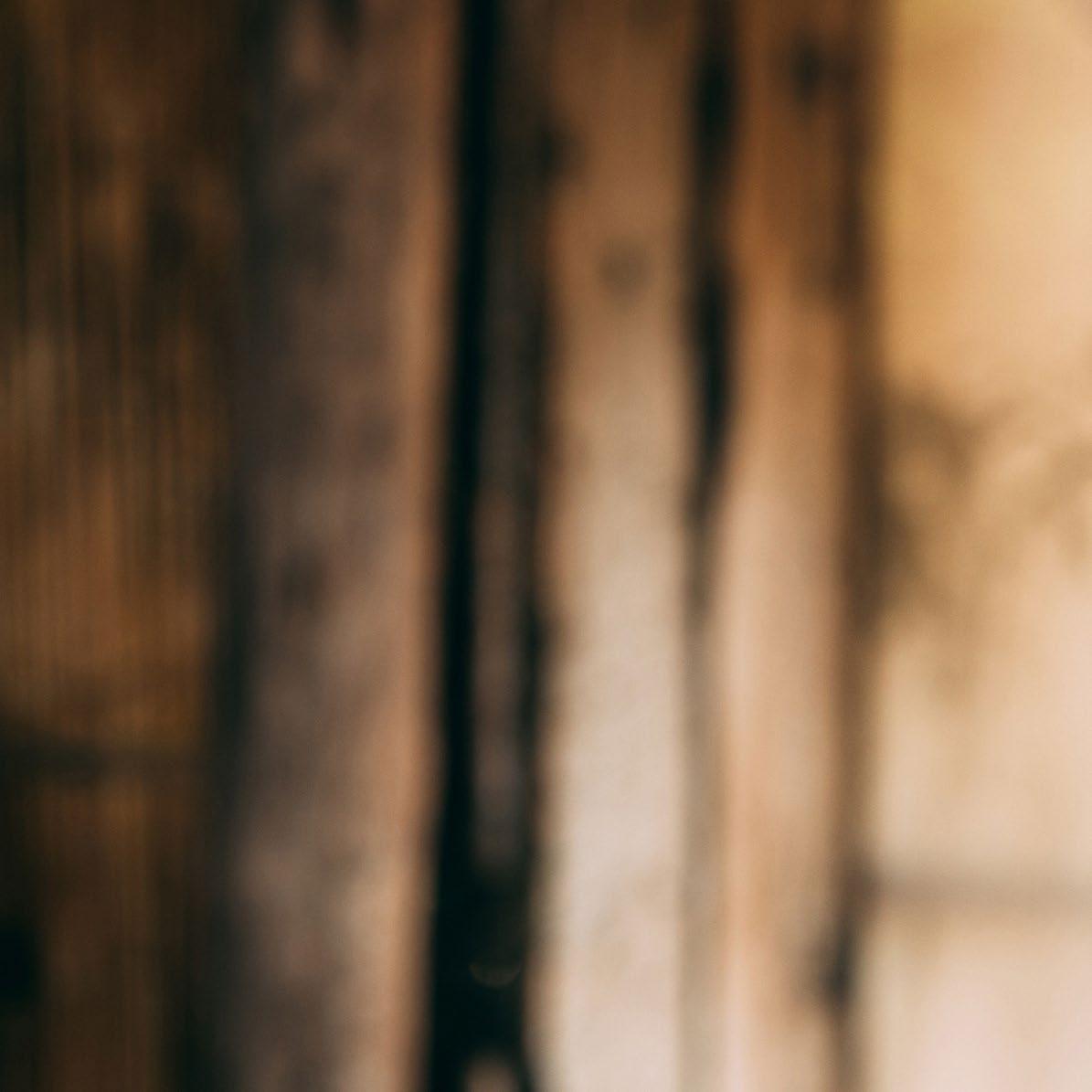
For Matius, this is home. Born in the lakeside village of Buhingu to a fishing family, he grew up listening to stories of Mahale from his parents, who once lived in what is now Greystoke Mahale. As a boy, he followed park rangers, worked as a porter, and later helped researchers track chimpanzees. Though life pulled him away for a time, longing drew him back. Now, as a guide for Nomad Tanzania, Matius walks the same forest trails his parents once did, sharing his deep-rooted love for Mahale with visitors from around the world.
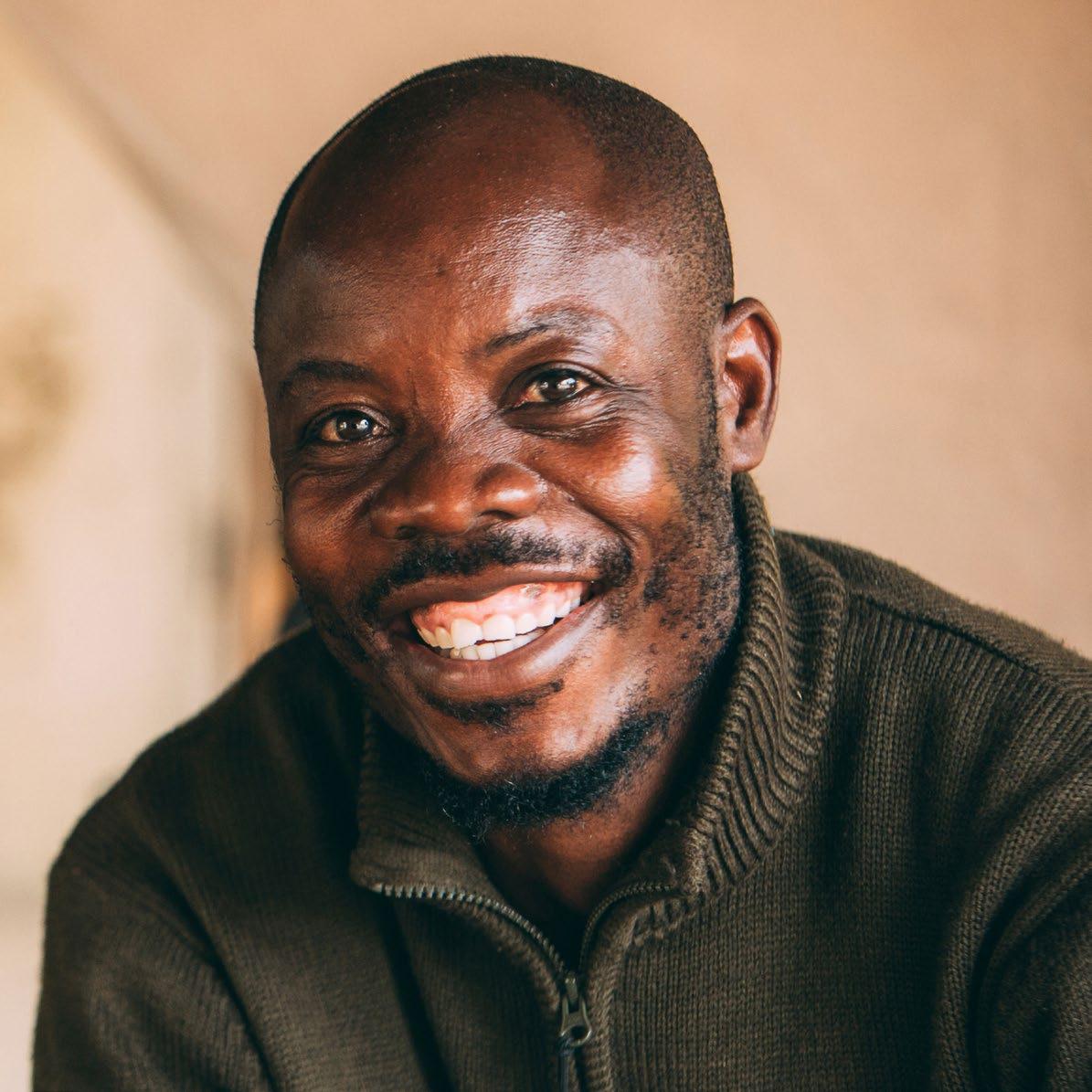
Reporting period: May 2024 - April 2025.
Lending camps, people, cars and planes, wherever we can be helpful to support conservation in the field.

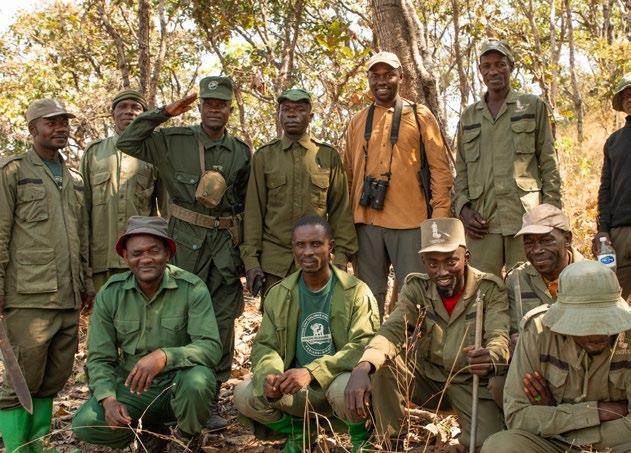
580
patrol days in partnership with Wild Survivors and Tongwe Trust.
Lion Conservation Ambassadors (LCAs) supported in Katavi region.
3 carnivore-proof livestock enclosures installed in the west.
7 rangers and monitors actively patrolling and monitoring key species and spaces.
2
16 Ilchokuti ‘Lion Guardians’ supported through KopeLion in the Ngorongoro Conservation Area.
Nomad contributions to our conservation partners.

Dogs. $5,013

$22,861 $5,000
$62,141 $5,000
$5,015

$7,572 WASIMA.

$6,280 $5,400 total spent.

We work with conservation experts on the ground supporting them with financial contributions, logistical support and people resource. Over the next couple of pages, we shine a light on our partners to show how our collaborative relationship delivers real impact. De-snaring dollars.
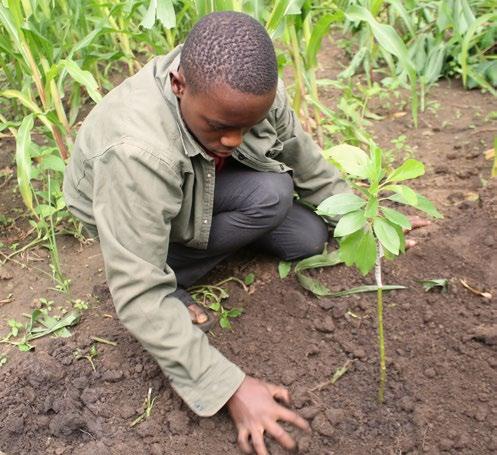
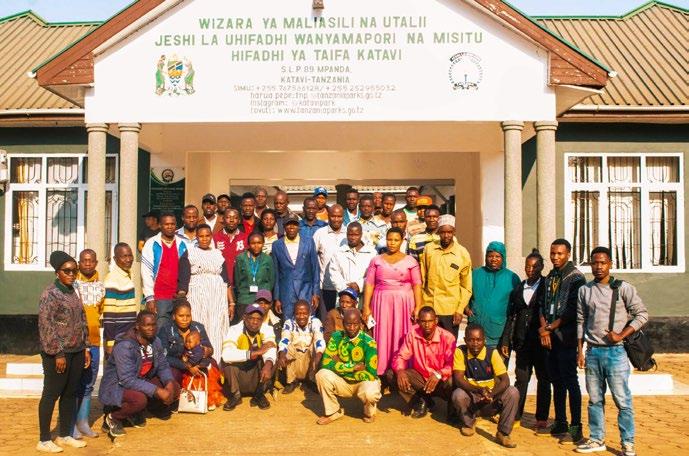
Empowering Communities and Conserving Wildlife in Western Tanzania.
WASIMA, short for Watu, Simba na Mazingira (People, Lions, and Environment), is a grassroots non-profit organization based in Western Tanzania. Established to address the escalating human-lion conflicts in the region, WASIMA aims to promote coexistence between local communities and wildlife while enhancing sustainable livelihoods.
WASIMA have different activities to support the communities living alongside the Katavi National Park to reduce incidence of lion attacks, and community retaliation.
WASIMA introduce strengthened livestock
enclosures to help reduce the incidence of lion attacks on community livestock. This year they have constructed 48 new ‘Lion-Proof Bomas’ in high risk areas, which have secured 1,741 livestock valued at over $370,000. These structures significantly reduce predation and retaliatory lion killings in the areas, with no reported attacks within the secured enclosures.
Beyond safeguarding livestock, they also enrich the land, as accumulated manure naturally fertilizes soil, improving crop yields and supporting sustainable agriculture, a win for both communities and conservation.

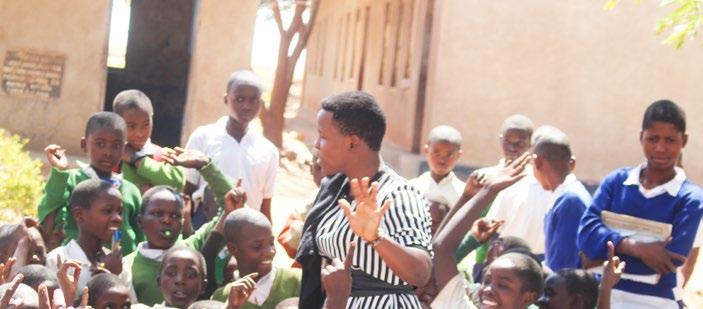

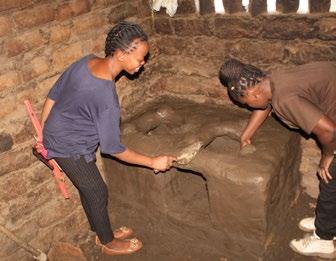
Another approach is the WASIMA school wildlife clubs. Through these clubs, the organization empowers youth as advocates for environmental conservation in their areas. This year 3,333 students were engaged across 14 schools –fostering a deeper understanding of biodiversity and sustainable conservation practices.
The clubs cover topics of eco-studies, conservation-themed arts and crafts, group presentations, and the creation of a school flowering garden. By immersing students in hands-on environmental initiatives, they encourage active participation, leadership, and long-term environmental responsibility, ensuring that future generations are equipped with the knowledge and passion to protect Tanzania’s natural heritage.
WASIMA also employ the use of a ‘Loudspeaker Early Warning System (LEWS)’ to help alert people to lions who pass over onto community land.
This year 17 lion warnings have been deployed to help people stay extra vigilant and safe while herding their cattle or going about their business around the village.
A further 45 conservation messages were broadcast to help use this tool for education as well as warnings. By warning residents about lion movements and sharing important conservation updates, LEWS is helping communities live safely alongside wildlife while protecting their environment.
Community camera trapping in remote Southern Tanzania.
One of the most significant developments this year was the transition of five villages to the advanced Community Camera Trapping + (CCT+) model.
This innovative approach enables communities not only to receive benefits from wildlife captured on camera traps placed on village land, but also to engage in behaviour change through a system of bonuses for conservation-positive activities and penalties for conservation-negative actions.
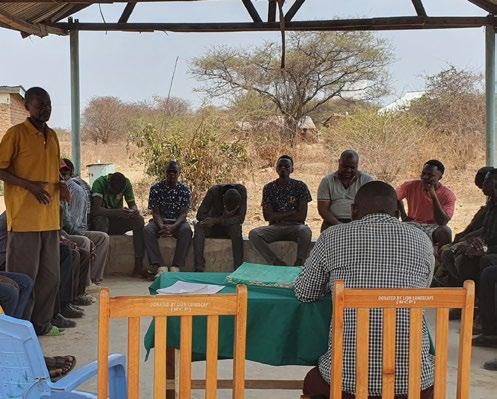
In 2024, approximately $40,000 in benefits were distributed across the 13 villages participating in the programme.
The collaborative nature of this programme means communities help identify local conservation threats and are incentivised to work together to reduce them. Overall, this initiative delivers tangible, additional benefits while encouraging effective, locally appropriate conservation actions.
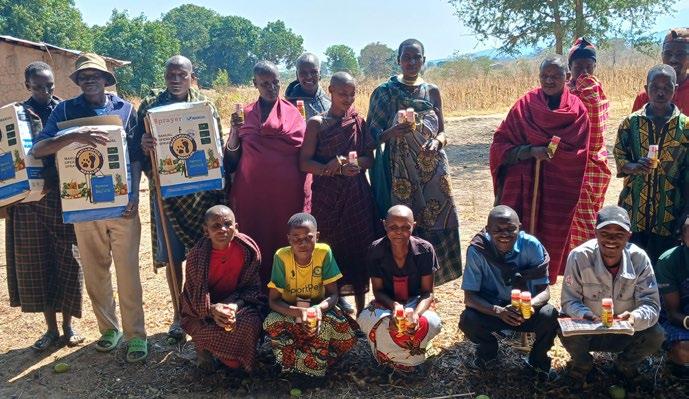
In the Ruaha landscape, 19 Lion Defenders— local recruits who patrol vast areas to track lions—remained active throughout 2024. When lions are detected near people, the Lion Defenders alert communities and often physically chase the animals away, helping to safeguard both human lives and lion populations.
These dedicated individuals play a vital role in preventing livestock depredation and reducing retaliatory killings—one of the most pressing threats facing lions and other large carnivores in Ruaha.
In 2024, Lion Defenders responded to 221 human–wildlife conflict incidents. Their swift response reduced pressure on communities and helped prevent retaliatory actions against carnivores. They also provided first aid to 73 livestock injured by carnivores, preventing infections and further losses. In addition, they successfully recovered 747 lost livestock, valued at approximately $50,000.
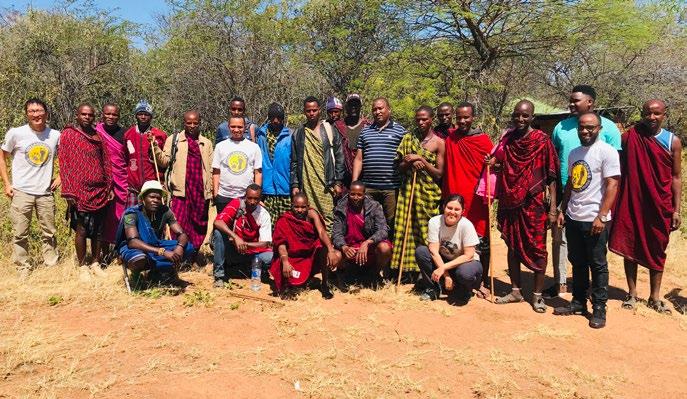

Transforming conservation challenges into community solutions through the power of performance.
Using “forum theatre,” Seka’s actors create engaging, issue-driven plays tailored to the specific challenges faced by villages in human-wildlife conflict (HWC) zones. Their performances address key topics such as wildlife presence, child rights, and environmental stewardship in an entertaining, participatory way.
Over 3,000 people across four villages near Tarangire and Serengeti National Parks took part in these performances. From schoolchildren to elders, the plays sparked laughter, learning, and lively discussion. Sketches explored deforestation, elephant incursions into farmland, and unsustainable honey harvesting, issues central to communities living alongside wildlife.
Seka’s approach is rooted in a powerful philosophy: that people are the agents of their own change. They believe culture is critical to
any development programme, and that a well-crafted piece of theatre can achieve more in 15 minutes than thousands of written words, their work is designed to empower rather than lecture.
Through humour and dialogue, communities contribute solutions and share their voices. Theatre becomes a bridge between conservation and community, helping people understand that humans and biodiversity can co-exist, and that protecting the environment is everyone’s story to tell.
Scan the QR code to watch our short SEKA film.
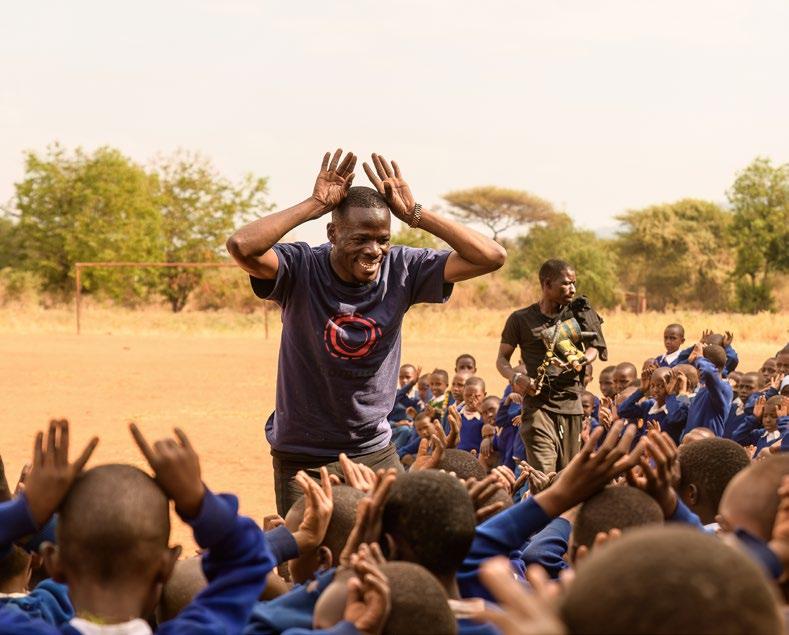
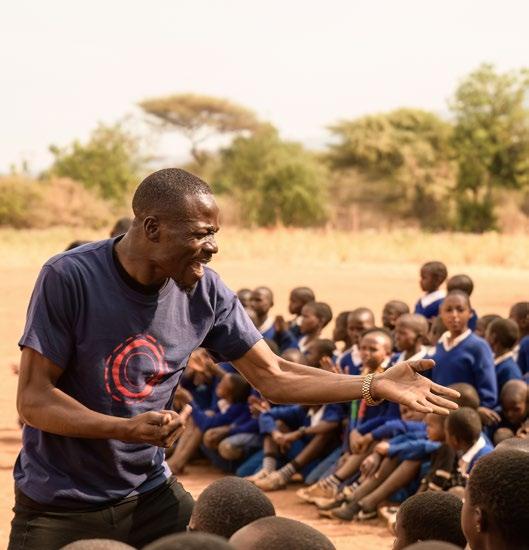
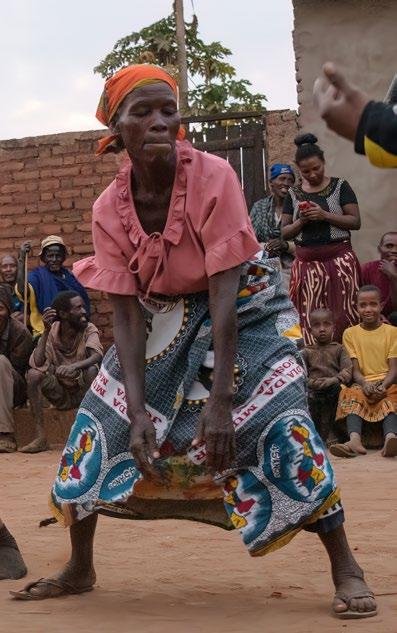
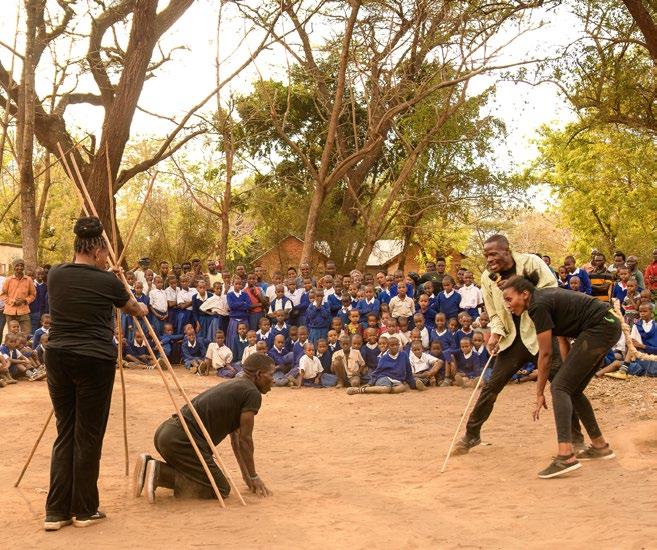
Where technology meets tradition in protecting Tanzania’s most vital wildlife corridor.
In the shadow of Lake Tanganyika, where forests form vital corridors between Katavi and Mahale National Parks, twelve Ntakata Rangers work with the Tongwe Trust to protect 11,000 hectares of wilderness that cattle herders and timber cutters increasingly threaten.
The Ntakata Forest is a crucial lifeline for our closest primate cousins. Chimpanzee families depend on this corridor to move freely between protected areas, maintaining genetic diversity crucial for their survival. Yet pressure mounts as Sukuma pastoralists push deeper into the forest with their cattle, while axes bite into timber that has stood for decades.
Our partnership means the team no longer write their daily observations in weathered notebooks. Instead, they can use mobile phones to capture GPS coordinates of illegal camps, photographs of cleared areas, and real-time updates that travel instantly to conservation managers. What began as pencil-and-paper patrols has evolved into sophisticated data collection.
This transformation reflects Nomad’s approach to meaningful partnership. Rather than imposing solutions, we strengthen existing initiatives.
The rangers’ presence alone shifts the balance. Illegal encroachment has decreased noticeably since patrols intensified, trees still stand where they might have fallen and chimpanzee paths remain unbroken.
Each dawn patrol connects to something larger, the understanding that true wilderness protection happens not through grand gestures, but through steady, daily commitment by people who call these forests home. In supporting the Ntakata Rangers, we invest in guardians who measure success not in tourism numbers, but in the quiet protection of this remaining wilderness.
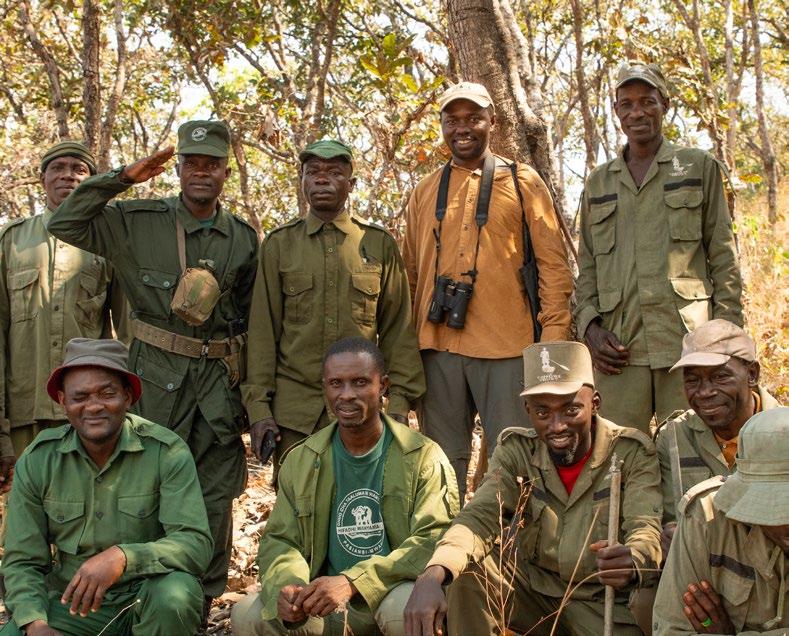
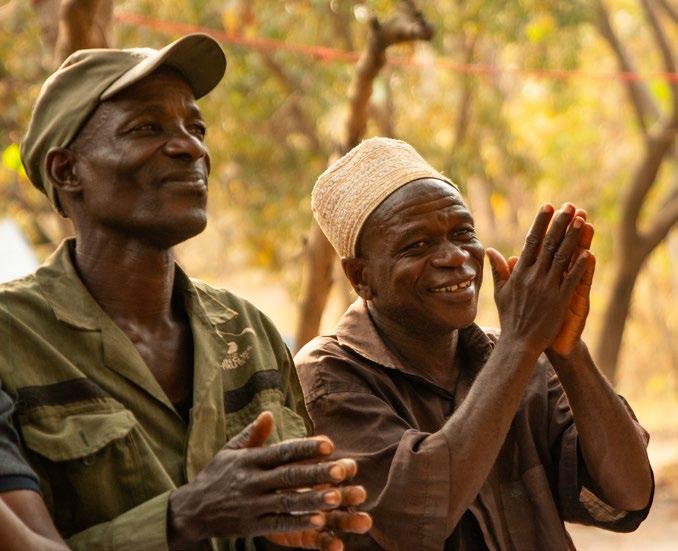
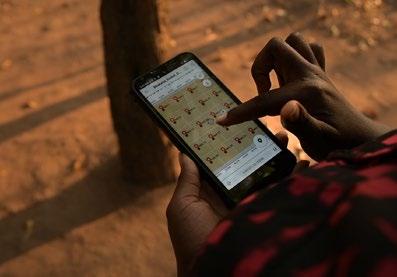
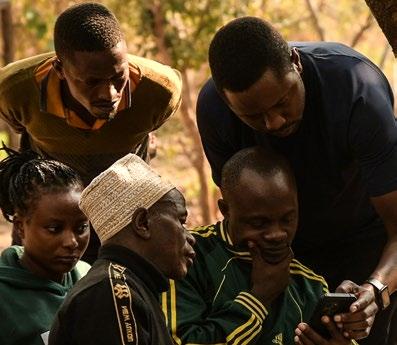
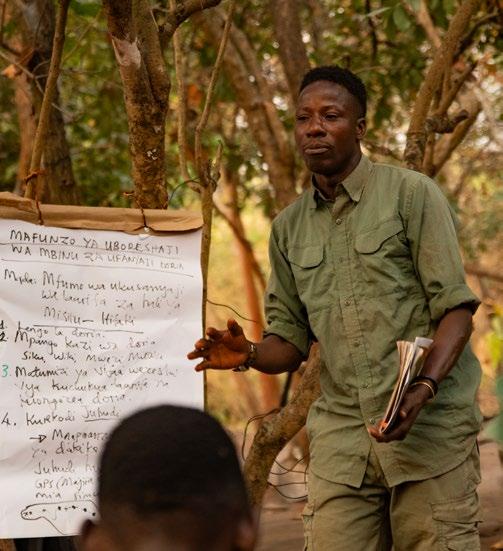
Reporting period: May 2024 - April 2025.
Doing anything we can to inspire the next generation to realise the importance of conservation.
2,940
SHARING OUR LOVE OF THE NATURAL WORLD community members engage in conservation drama and dialogue for communities on the park boundaries.
invested in our MWEKA scholars.
$2,524 funded local students heading on safari.
$2,679
$6,953 for a number of village film nights and education evenings.
154
students on safari in Nomad camps including; Chada, Lamai, Sand Rivers and Greystoke.
$28,172 bought torches for local communities.
$40,662
$334 total spent.
funded kilometres of beehive fences, specialist ranger teams and research.
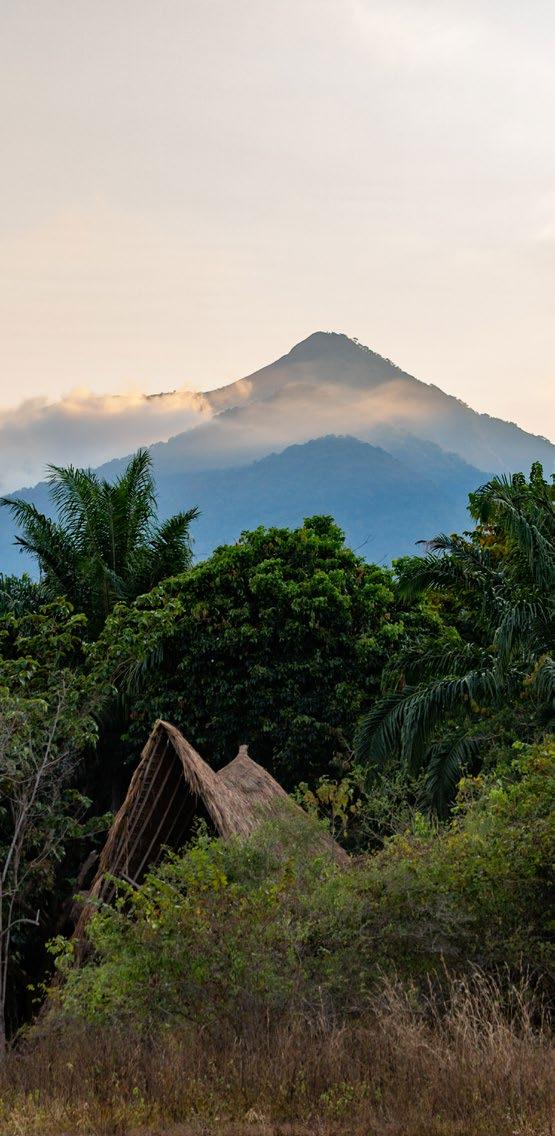
CONSERVATION DRIVEN BY TOURISM
Using tourism as a powerful tool for direct protection of habitats and wildlife.
$2,955,299
income for National Parks through client National Park fees.
$7,572
donated to the Serengeti De-Snaring Programmea dollar per bed night at Lamai, Serengeti.
Getting children from human-wildlife conflict zones into camp and out on safari gives them the opportunity to enjoy wildlife in its natural habitat in a positive and constructive way.
These trips impart not just an insight into the employment opportunities in and around the parks, but the beauty and fragility of their surrounding environment, and a core understanding of the values of conservation.
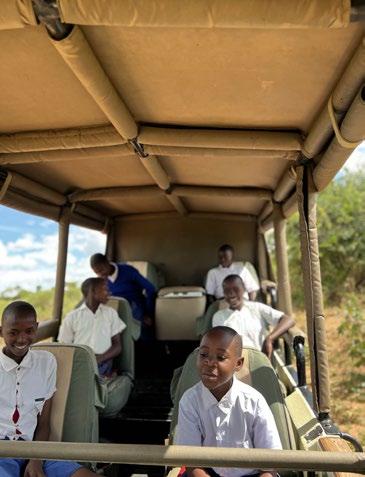
154
local students on safari in Nomad camps.
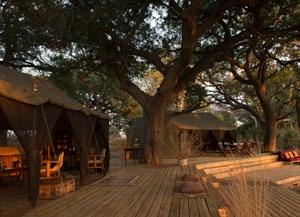
76
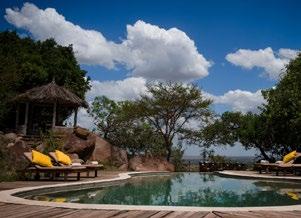
24
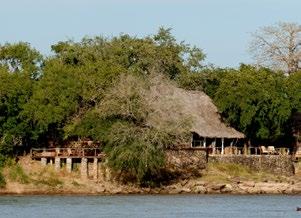
40
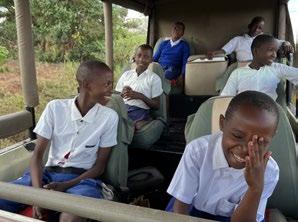
14
But, it’s not only children that benefit from these safari experiences.
We also host teachers, mature students and local leaders in camp to highlight the importance of conservation. Spending time in the bush brings a new perspective and appreciation for the wildlife and their habitat.
14
12
teachers joined us on safari as part of an educational trip so they can share their knowledge with kids and families within human-wildlife conflict areas.
26
local guide students gained firsthand practical experience and wisdom from the Nomad camp and guide teams, whilst the enjoying some special time in the bush.
community leaders joined us on safari to build strong connections and demonstrate tourism’s positive impact, many of whom have never been inside the National Park.
Find out more Scan the QR code to watch our short film on student safaris.
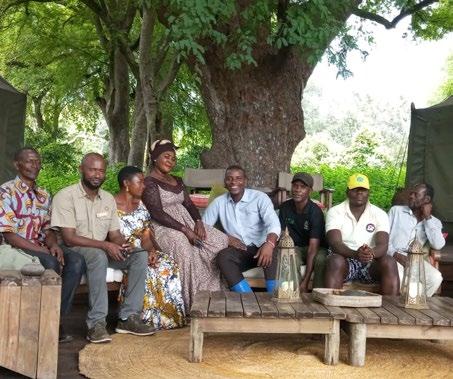
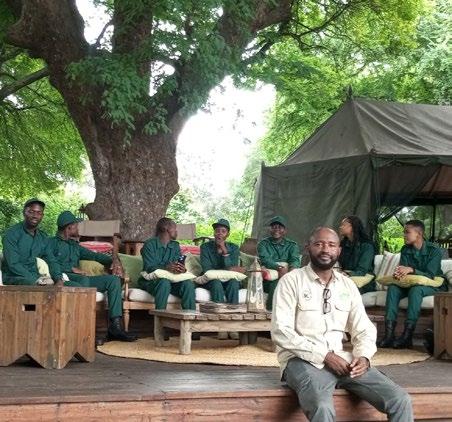
Laraposho, a Nomad Tanzania scholarship recipient, is putting his degree in Geographical Information Systems and Remote Sensing to critical use.
As a researcher in the Ngorongoro Conservation Area (NCA), he is focused on a growing threat to pastoralist livelihoods and biodiversity: invasive plant species.
These aggressive plants, including Gutenbergia cordifolia, Tagetes minuta, Bidens schimperi, and Lippia javanica, outcompete native grasses essential for livestock grazing. In pastoralist communities, this means less palatable forage, leading to overgrazing and declining animal health. Argemone mexicana – the Mexican poppy – is also rapidly spreading around Karatu, raising alarm for its potential impact on the Crater floor’s delicate ecosystem.
Using remote sensing, Laraposho maps the spread of these species across the crater and surrounding lands. This data supports management strategies like mechanical removal, prescribed burning, and the introduction of natural predators (biological control) to reduce invasive growth.
However, tracking invasive species across the vast and ecologically diverse NCA is no small task. Limited resources, rapid plant spread, and the sheer scale of the area pose ongoing challenges. That’s why Laraposho’s research also supports early detection and prevention programmes, as well as awareness campaigns targeting park staff and local communities.
Looking ahead, the plan is to enhance monitoring systems, expand education, and involve more community members in invasive species management to continue to use science and local knowledge to protect ecosystems, and the people who depend on them.
Find out more
Scan the QR code to watch Laraposho’s story.
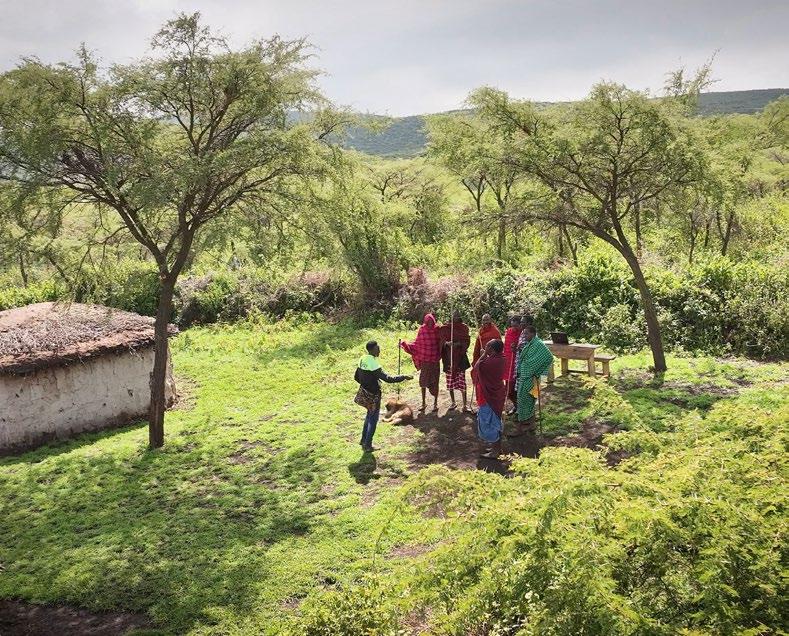

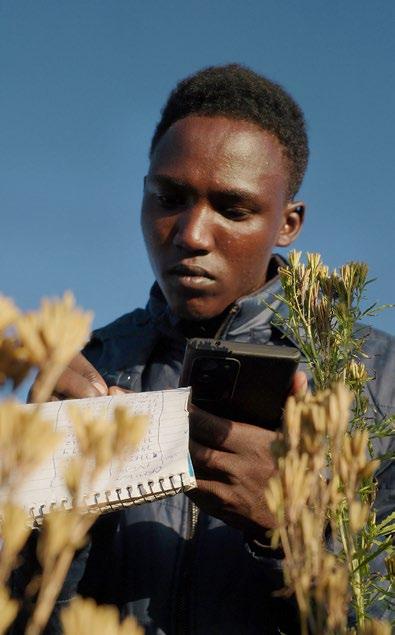
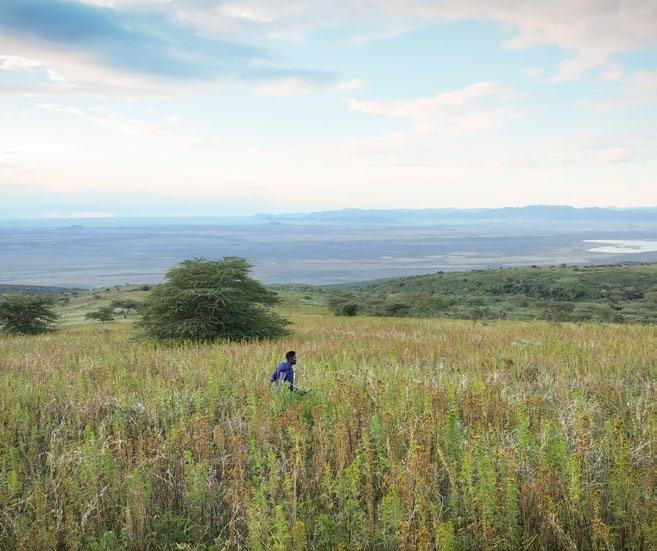
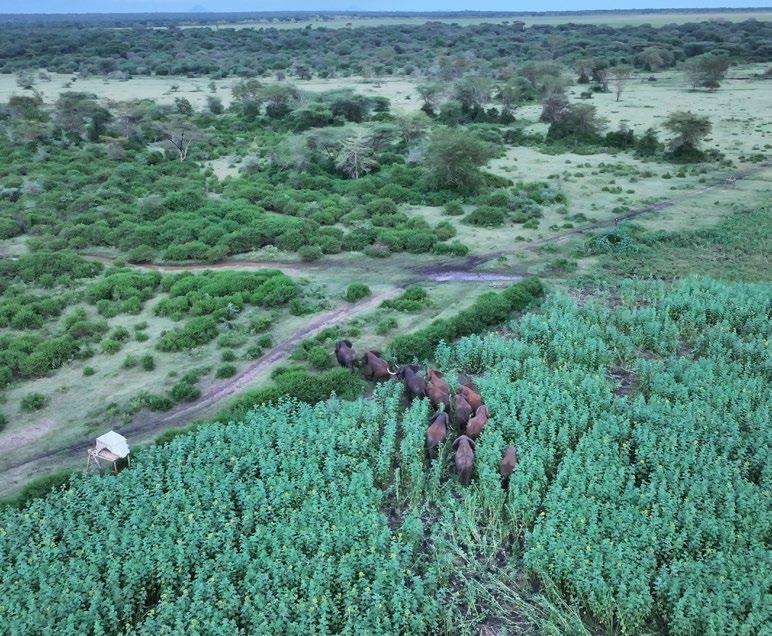
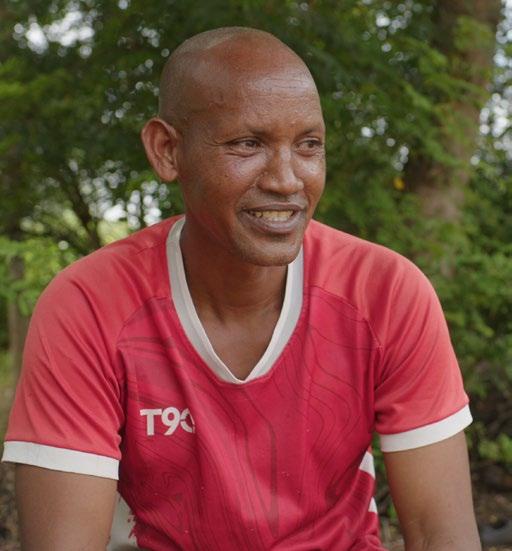

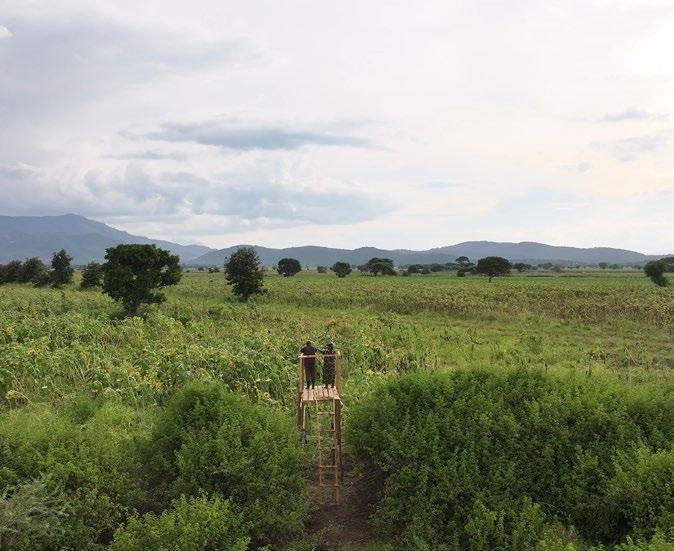
Along the edge of Tarangire National Park, where rich farmland meets elephant migration routes, a simple but vital innovation is helping communities and conservation efforts.
In these shared landscapes, elephants and people have often found themselves at odds, especially when elephants wander into farms, damaging crops and threatening livelihoods.
To help restore balance, we have helped to build 50 simple but effective wooden watchtowers along these human-wildlife boundaries. Strategically placed on the periphery of farms, these towers offer farmers a safe, elevated vantage point to monitor for elephant movement, especially during nighttime, when most crop raids occur.
From their posts above the fields, farmers use torches, flashlights, and noise-making tools to deter elephants from entering the farmland. This early-warning system provides a critical window of time to act before conflict escalates, protecting both crops and elephants from harm.
The towers are designed to be low-cost and community-managed, making them sustainable and accessible for rural households. By allowing farmers to defend their livelihoods without harming wildlife, the towers reduce the pressure to retaliate or take extreme measures against elephants. In turn, they help maintain the integrity of key wildlife corridors that are vital for the long-term survival of elephant populations in the region.
Scan the QR code to watch our short film from Tarangire.
Reporting period: May 2024 - April 2025.
Our social impact strategy aims to achieve meaningful results by aligning with the UN Sustainable Development Goals. This approach focuses on ending inequality and poverty while protecting the environment, ensuring that both current and future generations can enjoy a healthy and prosperous future.
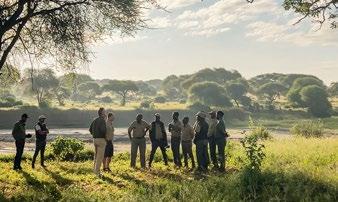

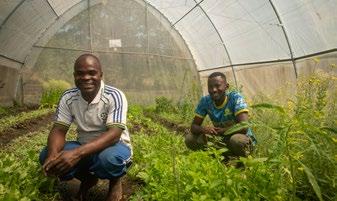
Ensure healthy lives and promote well-being for all at all ages
$66,553 total funding.
6,954 individuals reached through medical outreach, vaccinations, employment and more.
Ensure inclusive and equitable quality education and promote lifelong learning opportunities for all
$54,556 total funding.
11,307 individuals reached through our meal-a-day programmes, internships and secondments.
Promote sustained, inclusive and sustainable economic growth, full and productive employment and decent work for all
$2.71m total funding. 274 training days provided to employees and local communities.

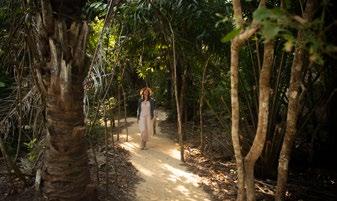
Ensure sustainable consumption and production patterns
390kg of waste recycled and turned into compost and chicken feed.
9,206 kilometres saved by using local vegetable and food suppliers from villages on the park boundary to supply the camps.
Protect, restore and promote sustainable use of terrestrial ecosystems, sustainably manage forests, combat desertification, reverse land degradation and halt biodiversity loss
$102,805 of total funding through conservation project initiatives, protecting wildlife corridors and raising awareness.
We’re on a mission to supercharge our projects, we invest financially, we commit people resource and operational muscle to help facilitate the initiatives across remote Tanzania.
But of course there is always a need for more and here’s how you can help.
Take every opportunity to ask questions and deepen your appreciation of the positive impact your visit is having.
Never expected, but always appreciated. Every dollar donated flows through Nomad Conservation Fund, a UK charity which solely supports our projects on the ground.
Getting a massage has never been so rewarding. All proceeds from our camp massage treatments go to our projects.
Be it t-shirts or other keepsakes, 100% of the profit from our camp shops supercharges our project work.
Here’s what your donations can do:
$150
MEDICAL OUTREACH FOLLOW UP
Pays for transport for a child to come to Arusha for reconstructive surgery.
$250
NOMAD STUDENT SAFARIS
Pays for transport to and from our camps allowing young Tanzanian students the opportunity to experience a Nomad safari.
$750
BEEHIVE SPONSORSHIP
Provides ten beehives for farms in human-wildlife conflict areas to help reduce the rate of wildlife encroachment.
$1,500
MEAL-A-DAY PROGRAMME
Feeds a class of around 100 preschoolers every day throughout their school year.
$2,500
SAFE DRINKING WATER FOR SCHOOLS
Buys and installs drinking water harvesting systems for a local school.
$5,200
DENTIST OUTREACH TRIPS
Sends a team of dentists out to camp and onto villages to offer dental treatment to over 500 local people.
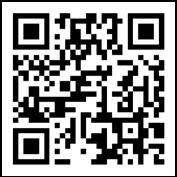
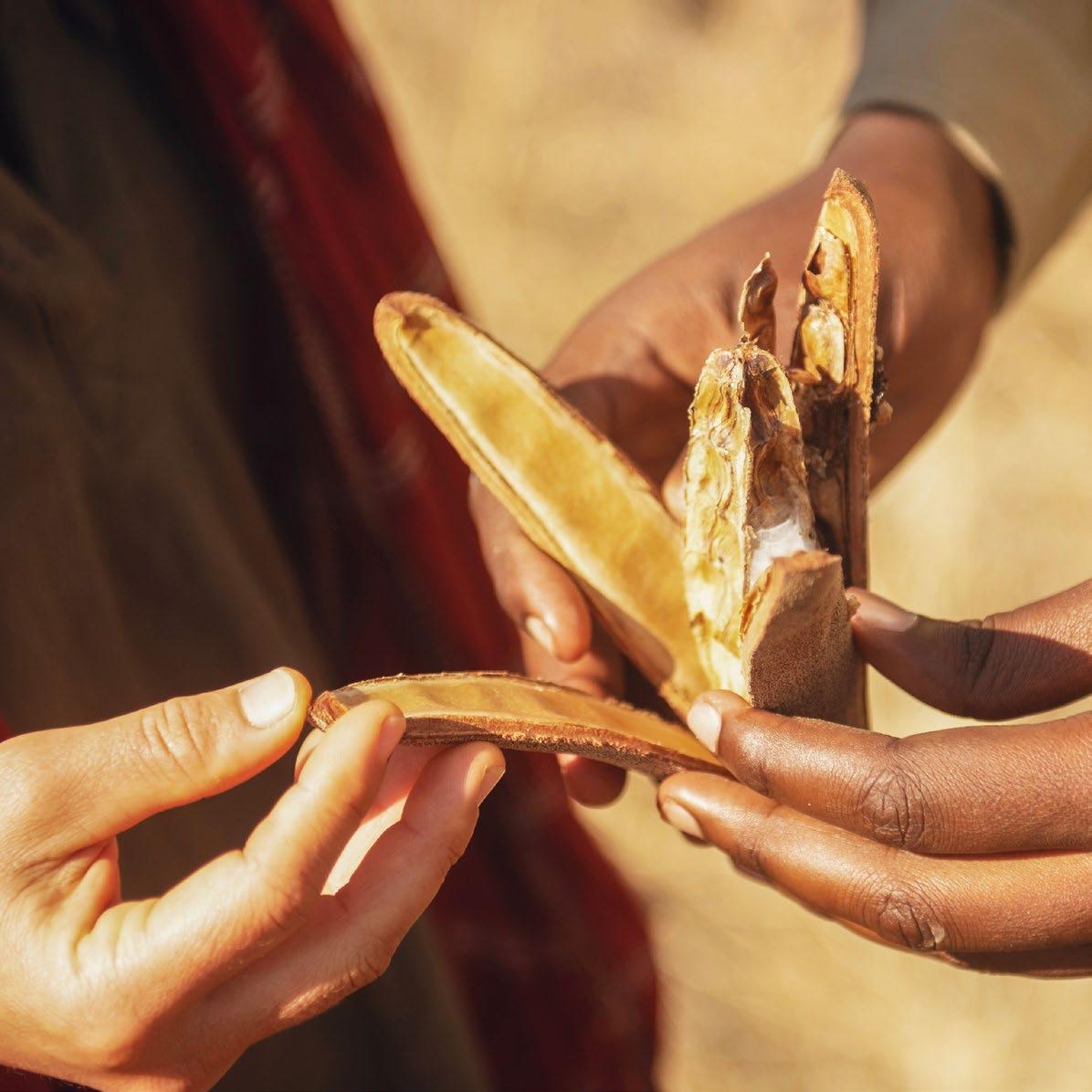
Like to donate? Please visit Nomad Conservation Fund’s donation checkout by scanning the QR code.